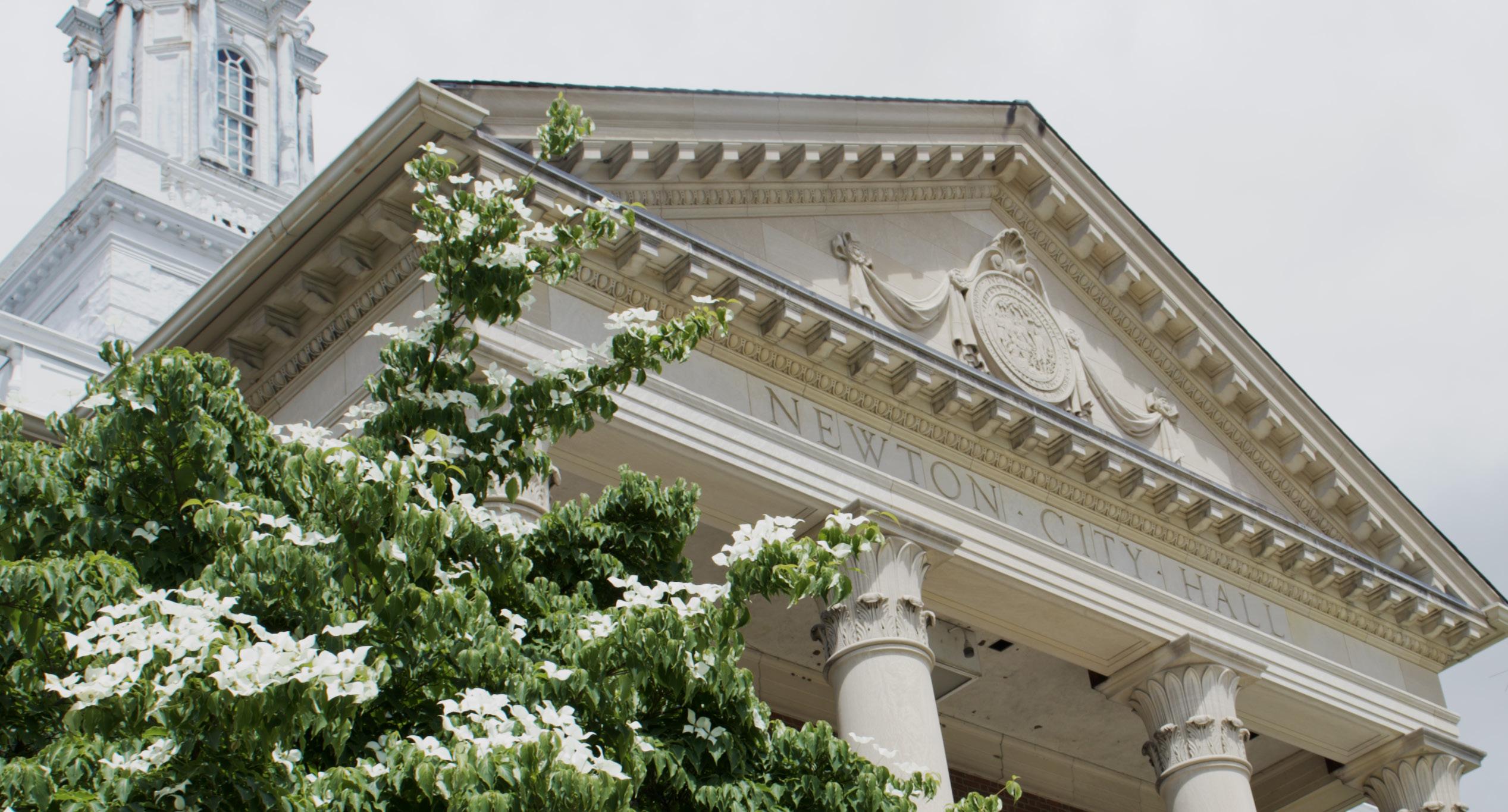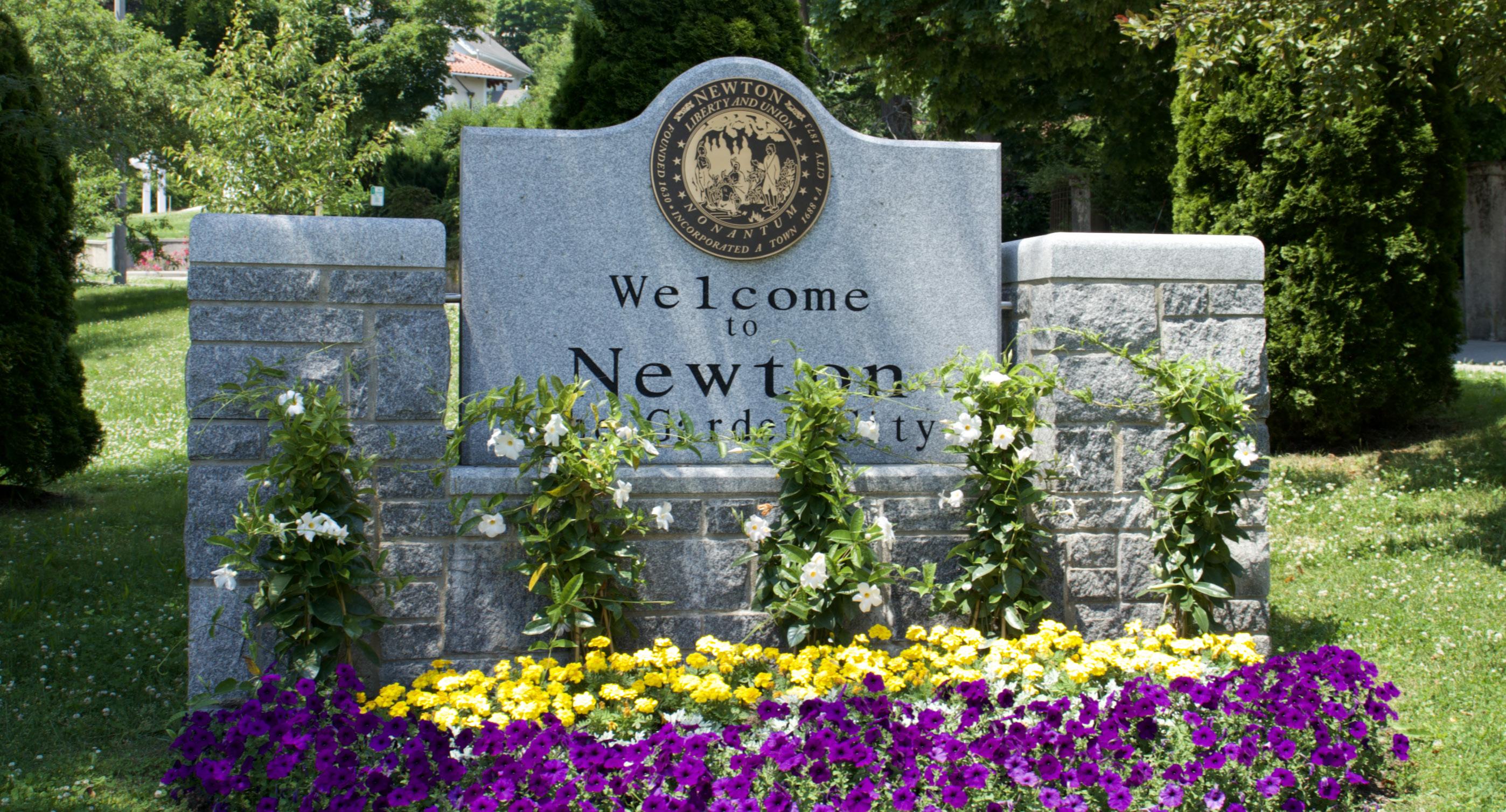




Since 1919, e Heights has been Boston College’s premier student news outlet. But in 2022, we set our sights on our neighbors in Newton, who, at the time, did not have a hyperlocal news publication to call their own. My predecessors took this de ciency as a challenge. ey refocused our “Metro” section—which had previously spread its e orts across Boston as well as Newton—onto the Garden City alone.
Since then, e Heights’ Newton section has kept dogged watch over local government, penned features that showcase Newton’s vibrant community, and reported entrepreneurial stories about the issues that matter. Our goal in this work is twofold—to inform Boston College students about the community that surrounds them, but more importantly, to bolster the growing local news economy in Newton for the bene t of its residents. To that end, we’ve partnered with e Newton Beacon since 2023, o ering the rights to repost our coverage in return for partial reimbursement of our reporting costs.
e Newton Beacon's assistance is crucial, as we have been nancially and editorially independent from Boston College since 1970.
We o er this special edition to provide voters with an engaging and comprehensive guide to the municipal elections taking place Nov. 4. We o er a series of features on new candidates in contested elections, a peek into the debate over the ballot question, along with some enterprise reporting that looks deeper into the issues at hand. If you like what you see, we encourage you to scan the QR code below to sign up for our weekly newsletter, which puts our top weekly headlines in your inbox every Monday morning.
Since our founding, e Heights’ motto has oriented our reporting toward one aim—“For A Greater Boston College.” But those ve words don’t account for the motives that drive the Newton section and this special edition. We hope this newspaper serves as a tangible expression of our commitment to covering your home with attention, curiosity, and respect. And that calls for a re ned creed.
Genevieve Morrison, Newton Editor

For A Greater Boston College, and For A Greater Newton
Sign up for our weekly newsletter by scanning the code below!


is story was originally published on March 16, 2025.
B Y G ENEVIEVE M ORRISON Newton Editor
Growing up in Newton, Marc Laredo never had a free moment.
“I had a paper route,” Laredo said. “I worked at a local restaurant as a dishwasher, busboy, short-order cook, night manager, waiter. I worked for the Newton Parks and Rec Department for several summers. I was one of the captains of the cross-country team. I ran indoor and outdoor track. I wrote for the school paper.”
When he moved back to the city after graduating from Cornell University and the University of Pennsylvania Carey Law School, he took on a similarly rigorous schedule as a father, a founding partner at a Boston law rm, and a Newton School Committee member. In 2012, he exchanged the school committee for a seat on the Newton City Council, then he was upgraded to city council president in 2023.
Now, with the help of several calendars and some ca eine, he’s campaigning for mayor.
“I’m drinking lots of co ee,” Laredo said.
While Laredo has spent his life wearing many hats, he feels he’s ready to let the rest go—committing to stepping down at his rm and in the city council—in order to take on the biggest job in the city: mayor.
“I’m at a point in life and nancially and otherwise, and not having any young kids at home anymore, where I can a ord for all those factors to do this,” Laredo said. “And that’s really important because I think the mayor’s job is beyond full-time.”
Part of the reason why Laredo is running for mayor is that he’s lived in Newton his whole life—he loves it.
“I grew up in a great community,”
Laredo said. “I got a really excellent education. ere’s a lot to o er here. It’s a vibrant community, which I think is really important.”
Laredo is a founding partner at Laredo & Smith, a Boston-based law rm that deals with business litigation, employment law, and white-collar criminal defense. Laredo said much of his work focuses on helping businesses to prevent legal issues before they arise.
“Try to get your clients up front to do the right thing, to treat each other, to treat people fairly, and if they do those things, try to protect them so they don’t get themselves into trouble,” Laredo said. “But sometimes people come to us after the fact they’ve done whatever they’re going to do. We can’t, we can’t x it that way. All you can try to do is minimize their troubles as best you can.”
Laredo said his experience helping businesses navigate the law would directly apply to the job of mayor.
“I know how to analyze issues, I know how to deal with organizations, both problem-solving and management aspects, and so I think I’m coming into city hall, hopefully, really well-equipped in that regard,” Laredo said.
Laredo first met Mark Smith, Laredo’s rm partner since 1999, while working together in the criminal bureau of the Massachusetts attorney general’s o$ce in the late 1980s. eir rst collaboration was on a securities fraud case against a man who was scamming Haitian immigrants, according to Smith.
“ is fascinating case was a huge undertaking about this kind of con man who had focused on the Haitian community and had ripped o a number of his clients for hundreds of thousands of dollars,” Smith said. “Marc put the case together, and then I tried the case to nish it o at was our rst real comprehensive dealing with each other.”
Laredo’s long career straddling the private and public sectors has made him a valuable legal partner, Smith said.
“Having a very broad background helps me bounce ideas o of him, even in areas that aren’t his speci c areas of specialization,” Smith said. “Marc is always a good partner to be able to kick ideas around with.”
Laredo’s specialty is family businesses, and Smith said this work involves resolving di$cult interpersonal con icts.
“When you’re dealing with some emotional issues and disputes involving large amounts of money, you have to have good interpersonal skills to kind of keep people focused on what’s in their best interests,” Smith said.
Laredo has brought this ex pertise into his role as city coun cil president, where he said he’s fostered cooperation by promoting councilors with di erent beliefs from him.
“I made a point of appointing committee chairs who did not necessarily agree with me or vote for me,” Laredo said. “In fact, I think of the seven committee chairs I appointed, I think ve had supported someone else to be president, and I’m ne with that. To me, it’s very healthy in leadership to bring people into the tent. And as a mayor, I’m going to have a large tent.”
Ward 7 Newton City Coun cilor Lisle Baker said Laredo has been a strong communicator in the 13 years he’s worked with him.
“I found him responsive and thoughtful and very concerned about the welfare of the city,” Baker said.
“It’s actually very important for the state of the city’s scal health that we improve our commercial base here, or at least not let it decline further,” Laredo said. “So that’s something I’m gonna be very focused on as mayor. How do we encourage businesses to stay here and move here and grow here?” Laredo said that the city has already made inroads in housing by complying with the MBTA Com-
ous village centers, easier for developers to come in and build as of right now,” Laredo said. “I think it’s going to take them, frankly, some time to start acquiring land, getting plans in place, and then getting shovels in the ground, but that’s coming.”
But beyond any one political issue, Laredo said he wants to focus on e ectively delivering the city services residents rely on.
ing down the street and have someone yell, ‘What’s for lunch?’” Cecchinelli said.
And for the lifelong Newton resident, cooking—and posting about it—helps him stay connected to his professional history as a chef, which informs his approach to politics.
“Working in a professional kitchen is a high-pressure thing,” said Cec
If elected mayor, Laredo said he wants to focus on nurturing economic development in the city, which he sees as key to resolving the city’s budgetary and housing problems.
eas close to public transport. According to Laredo, the city should wait to see what is built from those zoning changes before adopting any new and signi cant reforms.
“We have now made it, in numer-
“To me, being mayor is really, in some ways, very
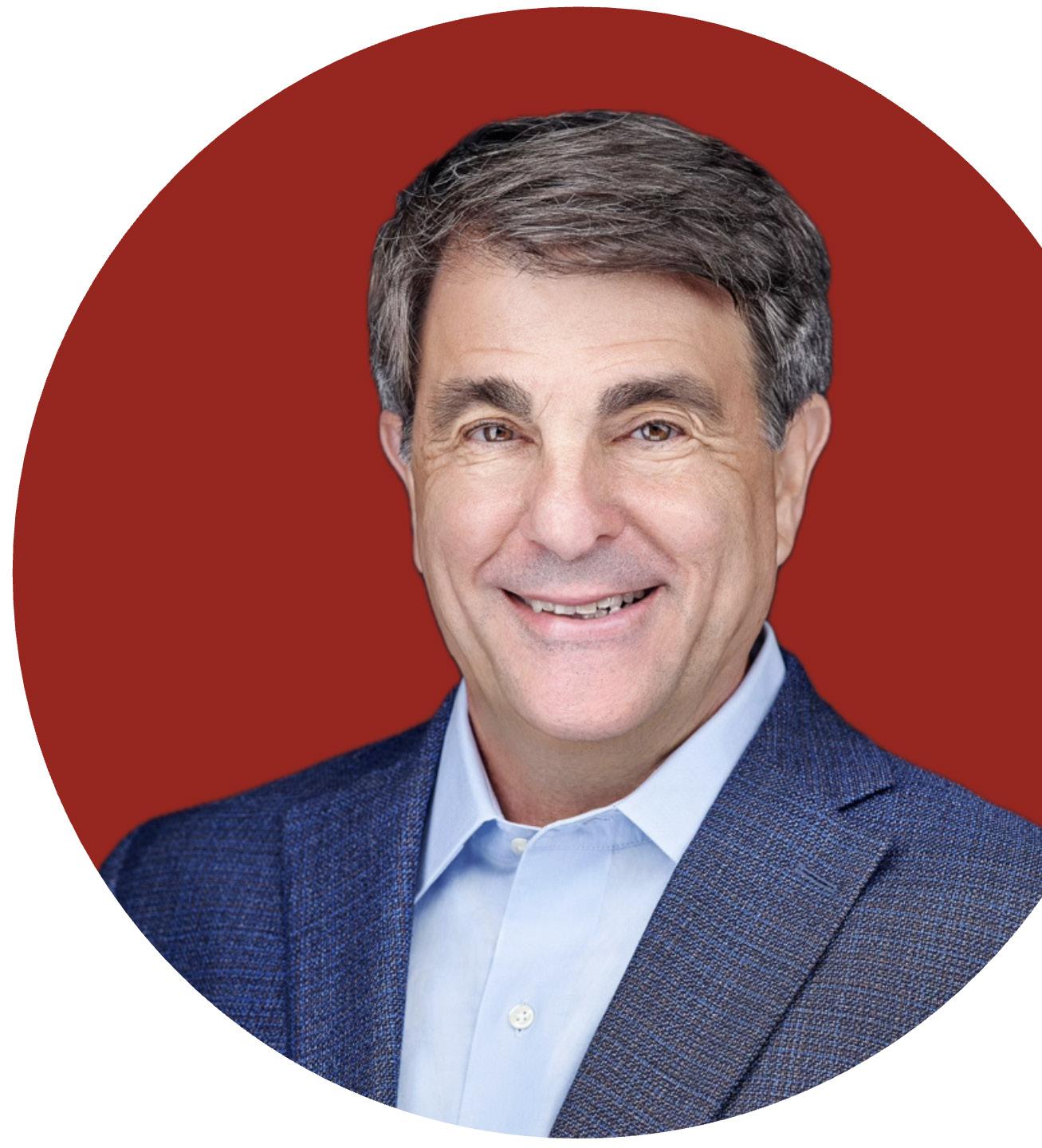
forward,” Laredo said. “It’s about schools, roads, and sidewalks. It’s about public safety, it’s about parks and recreation and culture. It’s a very core job about delivering services e ectively and e$ciently, and I think I’m going to be well suited to do that.” n
Association to the Community Care Cooperative, felt called to the mayoral race because of change. As he sees it, recent reforms like upzoning, housing development, and bike lanes on Washington Street are pushing the city in a direction he doesn’t recognize.
“Part of the reason that I’m running is because I love Newton,” said Cecchinelli. “I just love the city, and I see it changing to a point of being
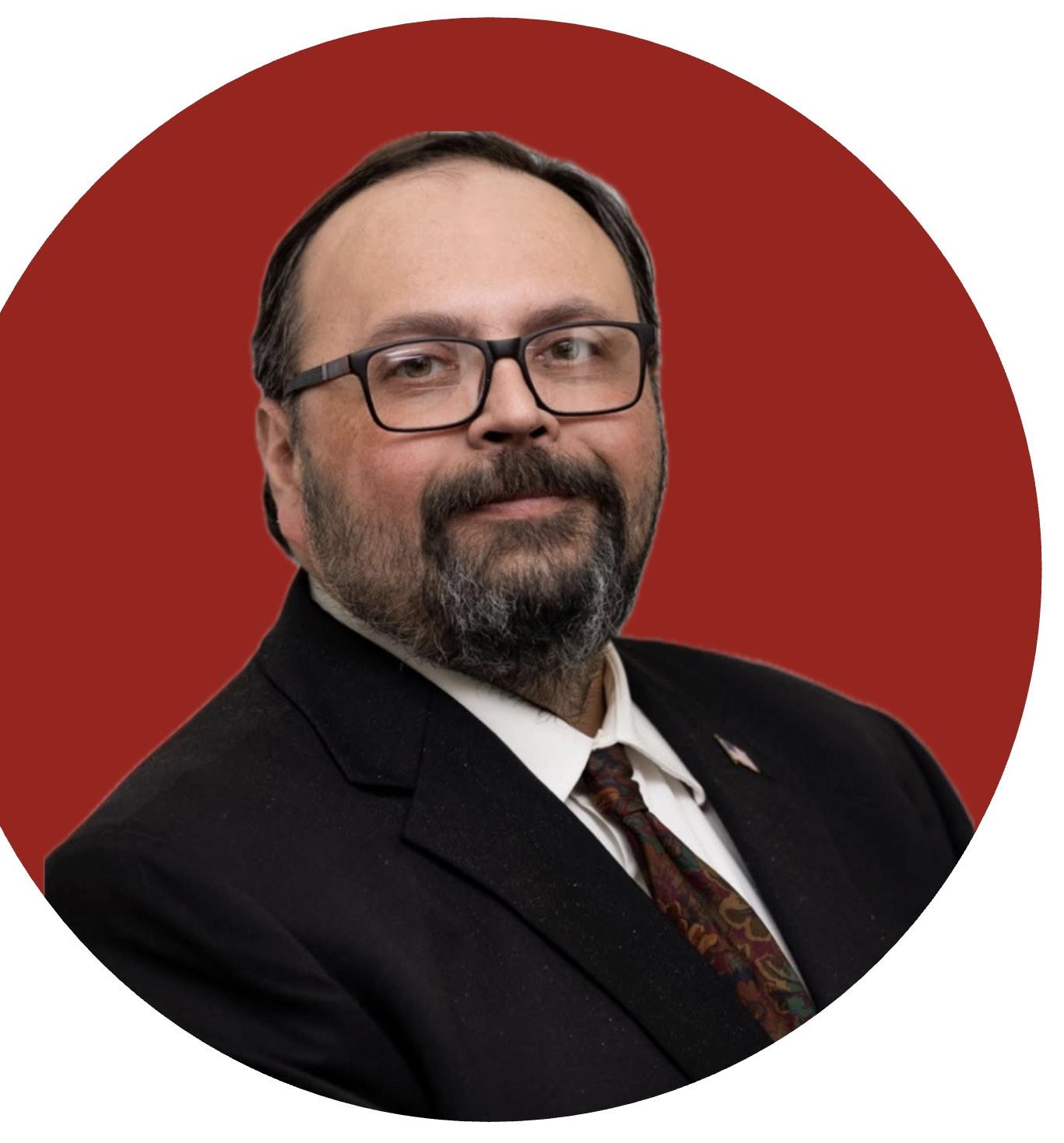
Much of that change is happening in the city’s housing policies, according to Cecchinelli. He opposes the notion that Newton has a housing shortage, an idea often invoked to justify upzoning policies that open the door to denser housing development. Instead, Cecchinelli said Newton has enough homes to go around— they’re just too expensive.
“There’s a big misnomer that there’s a housing shortage in Newton,” said Cecchinelli. “If you go on Zillow right now, there are 500 units available. We’ve got 2,300 units being built currently. The problem that we have is that we don’t have low-income housing.”
Instead, his approach includes requiring more affordable housing in new developments.
Currently, state law requires that at least 20–25 percent of units in a new development have affordability restrictions, but Cecchinelli wants to make those requirements stricter within the city.
six units, 30 percent of the units have to be at 30 percent of the average median income, so that might be a way to get that done,” Cecchinelli said. “But I don’t think that high-density housing is the answer to lowering the cost of apartments.”
Cecchinelli also opposes Newton’s sanctuary city status, holding that the city should comply with federal immigration laws, especially since Mayor Ruthanne Fuller invoked state laws as a justification for painting over the Italian flag lines on Adams Street in Cecchinelli’s home of Nonantum this past summer.
“Mayor Fuller cited that it was federal guidelines that required her to paint those lines and get rid of the Italian flag,” Cecchinelli said. “Well, federal guidelines require that if you’re not here legally, you have to be deported. So why do we pick and choose which federal guidelines we like?”
Though the race is nonpartisan, Cecchinelli acknowledged that his history as a Republican and his experience in the Newton Republican City Committee could keep some liberal residents from considering him for mayor.
“It’s tough because I know that there’s probably 25 percent of the city, right off the bat, that says, ‘Oh, he’s a Republican. I’m not going to vote for him,’” Cecchinelli said. “All my life, I’ve voted for Democrats or Republicans. I try to get the best person for the job, that person that I think is going to do the best job. And it’s a shame that you know that the label would keep somebody from looking at my ideas.”
Cecchinelli added that he has a lot in common with liberals in the city, perhaps best displayed in his plan to bring universal healthcare to Newton.
“Maybe we could put in our own system where any development over
To accomplish this, Cecchinelli said he would hire a staff of primary
care physicians to offer medical services through a public clinic, possibly operated out of the old Lincoln-Eliot Elementary School building.
In his vision, the city would first open the clinic to city employees through their existing insurance policies. Down the line, he imagines it could become a resource for the whole city.
“Eventually, we’re going to open this up to at-risk youth in Newton, we’ll open it up to the elderly in Newton,” Cecchinelli said. “It costs so much less to see a primary care physician in a clinic than it does in a private office.” November’s election will mark Cecchinelli’s third campaign for mayor. He previously ran in 2017 and again in 2021, winning 4.3 percent of the vote in the first race and 6.1 percent in the second. He said those campaigns taught him the value—and the difficulty—of a grassroots campaign.
“I can’t send a mailer out the day before the election, I just don’t have the money,” Cecchinelli said. “But it also shows that I’m going to be able to fund the city on what we need to do, as opposed to spending a lot of money.” Cecchinelli faces a stiff financial challenger in City Council President Marc Laredo—the other candidate in the race—who has spent $73,892 so far on his campaign. Cecchinelli, in contrast, has spent just $576, according to campaign finance records.
“It takes a lot of money to get your word and your name out there, and … I’m a grassroots campaign,” Cecchinelli said. “I need to get out and shake hands.”
But in the face of past defeats, financial hurdles, and a voting base that leans left, Cecchinelli thinks faceto-face connection might just be his secret weapon.
“I find that once people meet me, they sort of like me,” Cecchinelli said. n
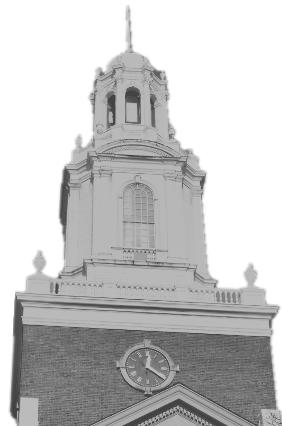
This story was originally published on Sept. 21, 2025.
B
John Chaimanis, a Newton resident and father of three, is running for the Ward 4 at-large Newton City Council seat in hopes of bringing common-sense decision-making and civil discourse to City Hall.
“I believe that healthy debate is very important,” said Chaimanis. “I’m a very pragmatic type of individual, so
I really can understand all sides of the situation.”
Chaimanis studied finance at Vil -
lanova University then took a unique career path after graduation, which he credits as having prepared him for public service.
“When I graduated, I didn’t want to work on Wall Street,” said Chaimanis. “I became a volunteer teacher, and I taught at a school called Nativity Prep.
Next year, I started a charter school with a few other people in the Dorchester area.” Chaimanis then transitioned to
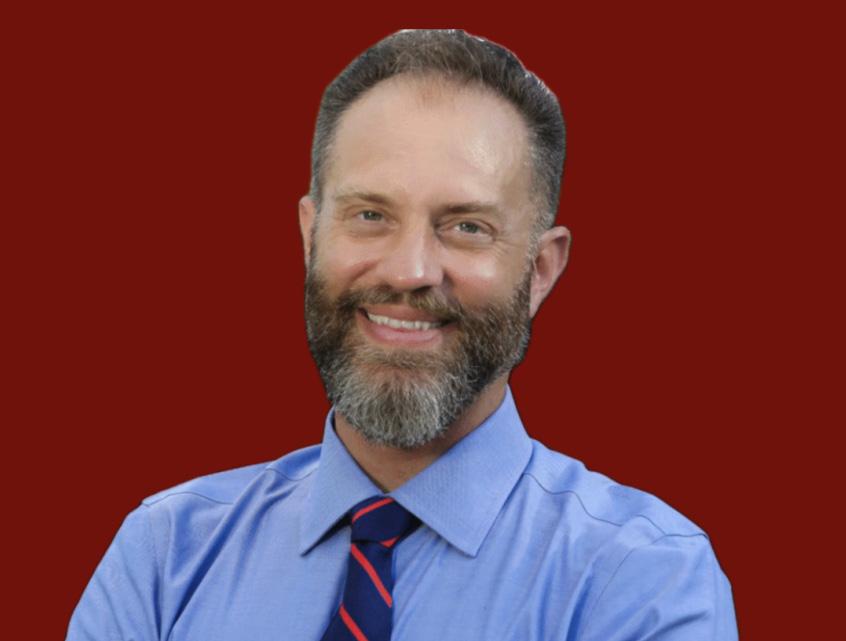
renewable energy, where he was able to synthesize his finance education and desire to give back. Today, he is managing director of Kendall Sustainable Infrastructure, an environmental development firm.
Chaimanis said he will bring a fresh perspective to the city council, combining his acumen for finance with his entrepreneurship and management experience. He also hopes to incorporate his experience with environmental sustainability.
“I’m running for city council because I have this sort of social, civic mindset,” Chaimanis said. “We’ve got a great sustainability action plan, and it should be kind of the undercurrent of the things that we do as a city, but it ultimately needs to make dollars and cents.”
Chaimanis believes Newton must continue to prioritize its schools, since a strong district makes the city a desirable place to live.
“I do believe, regardless of where people are in their lives, that good schools are the linchpin of a community,” said Chaimanis.
But to maintain a competitive district, Chaimanis stressed that the city government must continue to improve the schools. He praised Superintendent Anna Nolin’s approach, which he believes is essential to further
strengthening the district.
“We do have really good schools here in Newton,” Chaimanis said. “We have, over the last few years, dropped a little bit in our rankings. I think our current superintendent has some very good plans.”
After contentious budget negotiations between the Newton School Committee, Mayor Ruthanne Fuller, and district parents and teachers earlier this year, Chaimanis aims to leverage his background in finance to better serve the district’s budget.
“Hopefully, I’ll be on the finance committee, being able to really have the depth of exposure to where we are raising money and where we are spending money so that we can make our best decisions and fully fund our schools’ budgets,” Chaimanis said.
Chaimanis believes the same principle applies to city finances as a whole, where he hopes to deliver higher-quality budget information to Newton residents, since they contribute as taxpayers.
“I think we could do a better job of making that accessible to our voters, who are, honestly, incredibly intelligent people in this city that want that information,” Chaimanis said.
Chaimanis also wants to see existing affordable housing preserved, but in his view, building new housing
is unnecessary when the city can utilize what it already has.
“Newton is a very desirable place, and the demand for housing outstrips the supply,” Chaimanis said. “The key we’re talking about here is making sure we maintain availability for a variety of economic strata.”
And when large housing or other related projects are proposed, Chaimanis believes that public opinion needs to be given more attention before officials make decisions.
“We really need to listen to the local voices when big projects are proposed that are going to change traffic patterns and change the population of a particular area that will affect schools and all of our services,” said Chaimanis. “I think we can do a better job of that.” Integral to Chaimanis’ platform is his desire to make Newton more friendly to small businesses.
“We should be attracting and recruiting good local retail businesses and commercial businesses and making the permitting process quicker,” Chaimanis said.
Similarly, Newton should encourage its residents to spend more of their income within the city limits.
“One dollar spent in Newton is multiplied in Newton, and one dollar spent outside of Newton is lost,” Chaimanis said. n
is story was originally published on Sept. 21, 2025.
B Y S OPHIE C HAM BERLAIN Heights Sta
S AMUEL L EE -P APA S TAVRO S For e Heights
As Newton approaches its 2025 municipal election, city leadership faces challenges in providing high-quality public services while remaining affordable for families, young adults, and seniors.
Enter life-long Newtonian Cyrus Dahmubed, candidate for the Ward 4 at-large city council seat.
Dahmubed believes his background in architecture, urban design, and policy gives him a unique understanding of design thinking and spatial dynamics—skills he argues are essential to solving Newton’s a ordability crisis.
“We don’t have the kind of housing options that land in a price range that people in my generation—or [young adults]—can a ord,” Dahmubed said.
ere’s literally not anybody my age that I grew up playing little league or going to Sunday school with that still lives here. ey just can’t a ord to.”
Dahmubed was born in Newton and grew up in the Auburndale area.
His education was non-traditional, attending Montessori school until age 11 and then being homeschooled through middle and high school. He graduated from Harvard at just 19 and later earned a Master of Architecture from Northeastern.
Professionally, Dahmubed spent over seven years at the Boston-based design and planning rm Utile, where his work combined urban design, planning, architecture, and community engagement.
Dahmubed believes his education and professional experience have equipped him with a distinctive skill set.
“I went to a public meeting earlier this year,” Dahmubed recalled. “I thought to myself, ‘It would be really bene cial if someone who understood architecture, urban design, housing, and policy—and who had lived experi-
ence in Newton—was actually on city council.’”
Dahmubed asserts that Newton is becoming increasingly una ordable, speci cally for seniors, single-households, and young people. To address this, he advocates for expanding housing options, both in terms of variety and location, to allow a broader spectrum of people to live in Newton long-term.
Dahmubed also sees well-planned growth as a tool to expand Newton’s tax base and reduce reliance on tax overrides.
“If we want great schools and city services, we have to think about how to sustainably pay for them,” Dahmubed said.
“Strategic growth near transit and thoughtful zoning can help fund the things residents care about—without forcing people out”
If elected to city council, Dahmubed would bring a rare combination of technical training and deep local roots. He’s lived in Newton almost all his life and has been actively involved in the community, including service on the board of the Boston Children’s
Chorus. Dahmubed hopes to persuade constituents that through smart zoning, strategic growth, and transparent community engagement, Newton can maintain its character while adapting to the economic pressures that locals
are already feeling.
“This is personal for me,”
Dahmubed said. “I see so many of my peers who grew up here, who want to give back to the city, but they simply can’t a ord to live here anymore. at urgency is what’s driving me to run.” n
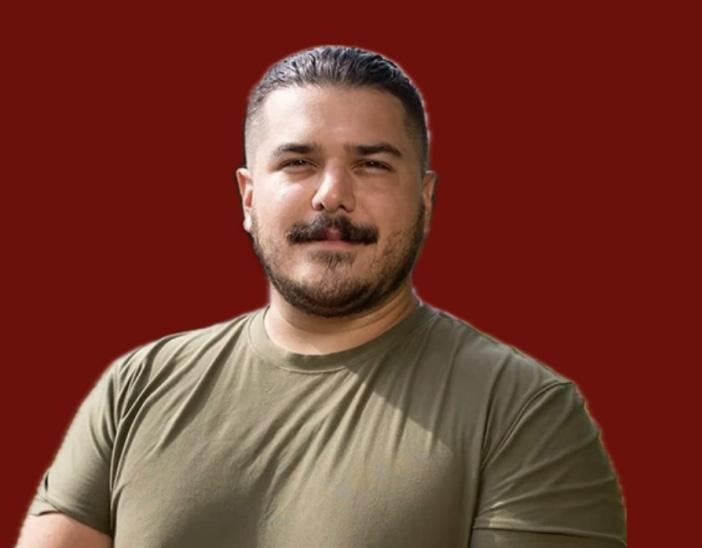
is
BY RILEY DEL SESTO
“It’s a real kind of a privilege to be able to go knock on anyone’s door,” said Irish.
“How often do you get to do that with a real reason? It’s a privilege to be able to talk to so many people.”
Her professional background in academic medicine informs her perspective—she has spent her career leading research at centers such as
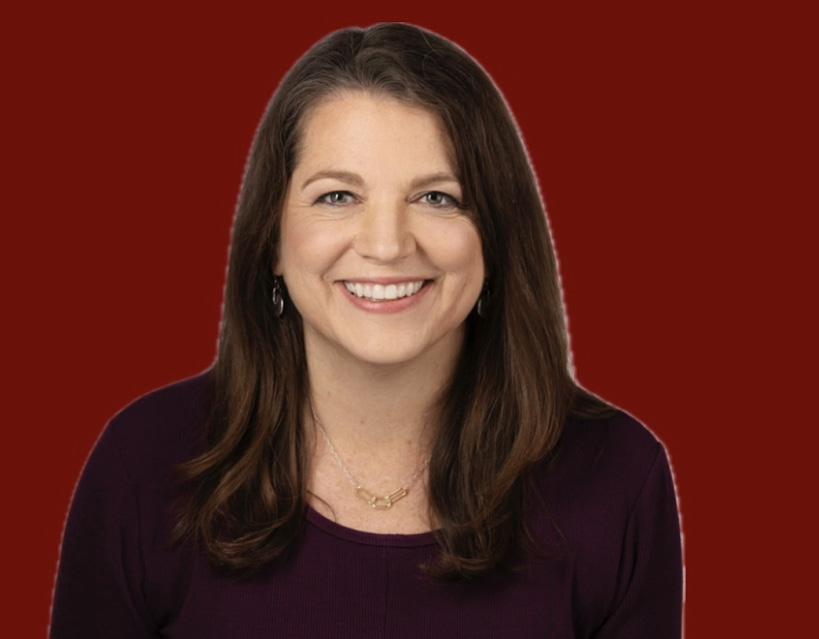
Tufts Medical School and Beth Israel
Deaconess Medical Center. Irish, who holds a Ph.D in social psychology, sees campaigning as a way to continue the interactive work behind research.
“’I’m a qualitative researcher, so it’s asking questions, listening, interpreting, and [knowing] how to use that information to make a change,” Irish said. “So for me, it’s just an extension of my professional expertise and work into campaigning.”
Irish believes she would add a unique touch to the Ward 5 Newton City Council seat through her personability and the value she places on human interaction. Irish believes her time volunteering with a range of organizations in the city will help her expand the reach and e cacy of the city council.
Irish is currently the president of the Upper Falls Area Council and previously volunteered with the Newton Parent Teacher Organization (PTO), but she hopes to extend her helping hand further as a city councilor. She said volunteering has helped her learn a lot about the city—and herself.
“I joke that when I was on the PTO, I learned so much about myself because
there’s so many volunteers,” Irish said.
“I have been involved in the community and working with the city for, oh gosh, probably over 10 to 15 years at this point.”
Irish said she decided to get involved in Newton after seeing all the opportunities it granted her two kids through soccer programs, summer camps, swimming lessons, children’s programming, and more.
“I learned from raising two kids here … that there’s so much out there,” Irish said. “You really don’t have to leave Newton if you don’t want to. Everything is here.”
Eleven current city council o cials endorsed Irish for the seat. Irish said she wants to follow the example of the sitting council, including that of her predecessor, Ward 5 City Councilor Bill Humphrey. To Irish, Humphrey is a model for emphasizing one-on-one interaction and transparency.
“Bill Humphrey is excellent and responsive, and he’s knocked on lots of doors,” Irish said. “What I would do di erently is be responsive to constituents as a ward councilor … if someone has an issue with a tree or sidewalk or
street sign, you’re the rst person they call and [you need] to be responsive.” If elected, Irish said she hopes to emphasize transparency.
“I think sometimes things just happen and people don’t understand why and they [get] really worked up, like ‘no one told me,’” Irish said. “It’s really about communication … If [councilors] tell you why something is happening, when it’s happening, it’s so much better.”
During a family trip at just 12 years old, Irish decided that Boston would one day be her home. She got pretty close to that dream—she has now lived in Newton for over 25 years and is immensely happy with her decision.
“We’re so lucky to live in Newton,” Irish said. “For me, it really checked all the boxes for having any and everything.”
Now, Irish hopes to give back to those who have made her feel so lucky to call Newton home.
“You have to always go back to the people you’re serving—that’s really what it’s all about,” Irish said. “ ere’s zoning and all sorts of things you have to do, but not to lose sight of who you’re doing it for.” n
is story was originally published on Oct. 16, 2025.
BY ANIKA CHANG GARCIA Heights Staff
With Newton City Council elections rounding the corner, Garry Miller is running for the Ward 5 councilor seat on a bid founded on his love of Newton, the city he has called home for 25 years.
e suburban city’s safety and easy accessibility to Boston initially drew Miller. Over the years, he found that Newton was so much more than he expected: a place of immense community.
“I really appreciate that I live in a community where you can actually meet your neighbors and have that sense of community,” said Miller.
Miller’s decision to take the step to run for city council stemmed from a desire for impact, originally in the form of an unpaved road.
“I was curious, and I couldn’t nd the information about when the street would be paved,” said Miller. “I wanted to know where this information is and why it hasn’t been done before.”
Miller was inspired to speak with Bill Humphrey—the current Ward 5 Councilor who is not seeking reelection—and was directed to the city website. He wrote to the mayor’s o ce and, eventually, Miller’s request led to the road being paved.
The outcome of his effort made
Miller realize that the system in place could work, but its ine ciency was the root of a much larger problem. Miller understood, then, that he felt called to improve communication between residents and government.
“What I think is a precept of communication is, no matter how much communication you’re doing, it’s not enough,” said Miller.
He knew that advocacy could make a difference, but Miller believed that running for his ward seat would enable that difference to be multiplied and longstanding.
With over 30 years working as a software engineer and product manager in healthcare services, practical experience and openness to new ideas are the hallmarks of Miller’s approach to problems, he explained.
“Problem solving is about taking theory and putting it into practice,” said Miller.
Miller’s history also includes activism for LGBTQ+ rights, which included volunteering on numerous campaigns for marriage equality in the 1990s and 2000s. He also currently serves as a member of the Neighborhood Liaison Committee for the Northland project, ensuring that community voices are ampli ed as the project continues development.
When working on the Washington Street Pilot project to implement bike lanes, Miller found that few people were
happy with the process. is experience gave Miller valuable insight into what engagement and collaboration look like from the perspective of a decision maker.
“So how do we make sure that there’s a feedback loop and say, ‘All right, let’s try this out, and if it doesn’t work, let’s make changes and be iterative about it,’” said Miller.
Miller emphasized that he wants city council ideas, particularly those with community engagement, to be the product of experience and not from a sense of assertiveness that might stem from positions of authority.
“It’s important, being able to say and admit when you’re wrong, and change your mind, and not be dogmatic,” said Miller. “I want my ideas to be tempered by experience.”
Miller believes a city councilor should address controversial issues and, when they vote on them, there should be deliberate reasoning behind their choice informed by the community they represent.
“A city councilor has to be in more places than just City Hall,” said Miller. “[ ey] need to be out in the community when there are controversial issues.”
If elected as a city councilor, Miller is passionate about strengthening public services, particularly schools and parks, which are foundational to the community.
“As the proud son of two native New Englanders for whom curiosity and hard
work are foundational values, education is one of my highest priorities,” reads Miller’s website.
Miller believes strong public schools, and a very strong education, are crucial for Newton’s identity and community cohesion—a fact displayed by his dedication to his own studies.
A graduate of Cornell University, Miller earned his bachelor of science in industrial engineering, later earning a master of science in health and medical informatics from Brandeis University and an MBA from the University of Massachusetts Lowell.
Miller wants to ensure that services, such as education, remain accessible to all residents by stressing the importance
of welcoming younger generations into the community, who are often unable or hesitant due to rising housing costs in an already expensive city.
“[Being] a welcoming city to people of all di erent income and racial and ethnic groups is important, but how can we do that when there’s nowhere for people to live who t those categories?” Miller said. “So, I really feel like housing is central to that question, and we need to work on di erent and diverse options there.”
Miller aims to be a strong, independent voice for his ward, one that is collaborative and focused on maintaining the promises and core values of the city he is proud to call home. n
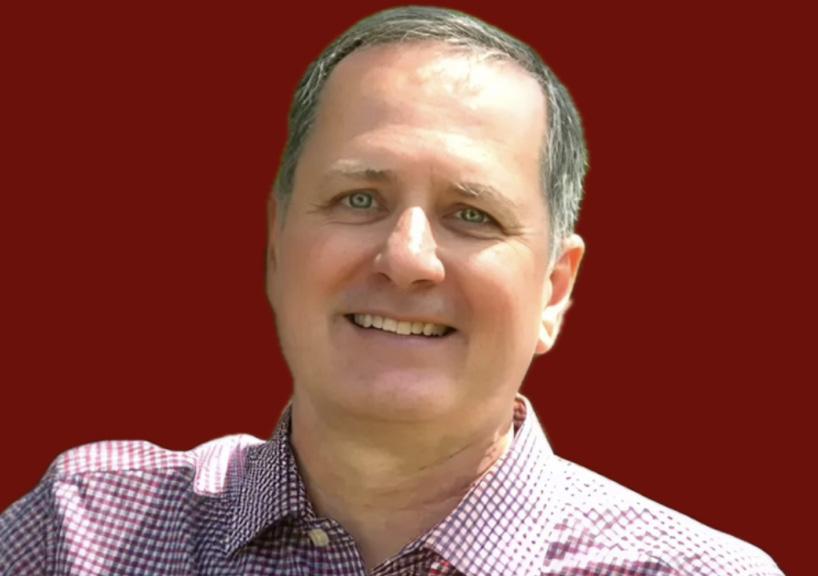
is story was originally published on Oct. 26, 2025.
BY REBECCA MACKINNON For e Heights
For longtime Newton resident Sean Roche, running for Newton City Council wasn’t a sudden decision, but rather the culmination of years spent advocating for better housing, safer streets, and
more sustainable city planning. “I’ve been very active in civic life on transportation and housing issues,” Roche said. “ e action on the issues that matter to me happens in the city council. If you want to see things happen, that’s the place to be.”
Roche’s roots in Newton’s civic life began when he moved to Newton and commuted by bike to and from Boston and Cambridge, rain, shine,
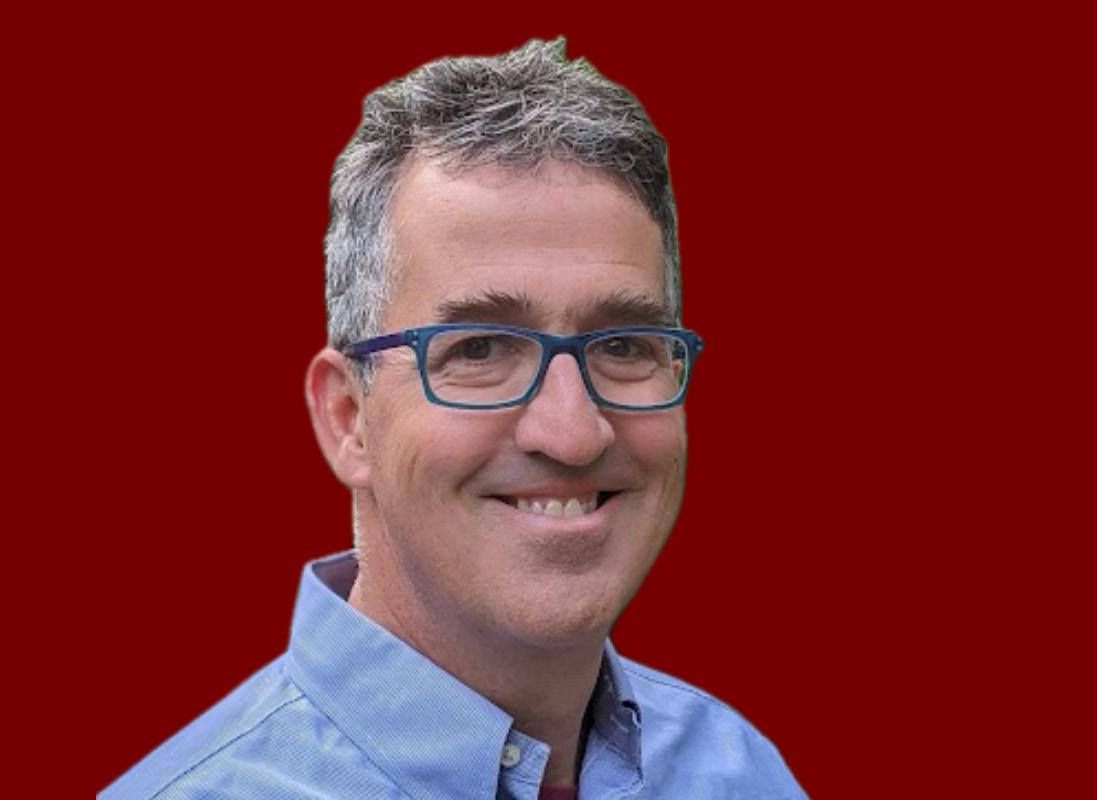
or snow. What started as a personal routine quickly evolved into something bigger—a drive to create safer infrastructure for cyclists and pedestrians.
After joining the Newton Bicycle and Pedestrian Task Force, where he worked on local safety improvements, Roche later expanded his advocacy work to broader initiatives connecting transportation, housing, and climate action.
“I came at it from these two small apertures—biking and neighborhood tra c—but those apertures widened,” Roche said. “I saw how land use, transportation, and the climate are all connected.”
Roche describes himself as a housing advocate, and he wants to expand a ordable and diverse housing options within Newton. Speci cally, he is focusing on how rising housing prices and the city’s increasingly homogenous wealth distribution signal an urgent need for more inclusive development.
“We need more housing options at di erent levels of the economic ladder,” Roche said. “Our population is becoming increasingly skewed toward the most wealthy.”
Roche’s background is just as
widespread as his civic interests. He characterizes himself as being on “Act Four” of his career.
Roche served as an assistant district attorney in Bronx County, where he prosecuted sex crimes against children. He later transitioned into corporate law, then to healthcare technology as a software product manager, and most recently to operations at a Newton-based nonpro t that runs group homes for developmentally challenged adults.
Over the past several years, Roche has left his mark on Newton through small yet meaningful acts of advocacy.
He was a member of the mayor’s appointed Transportation Advisory Committee, which became the Transportation Advisory Group. He worked with various departments within City Hall and the mayor’s o ce, as well as with city councilors and state legislators.
“I’ve got a bunch of things around Newton that I can take credit for,” Roche said. “ ey’re small changes to sidewalks in Newton Center that I identi ed, bike lines that I was either the primary driver for or part of a group, the Needham Street Green Line, and a bridge across the Charles in Lower Falls.”
While Roche sees himself as a
values-driven leader who wants to understand where other people are coming from, there are some issues on which he will not waver.
“We can compromise on how we address the issues, but not on recognizing the climate crisis or the housing shortage,” Roche said.
If elected, Roche hopes to make environmental accountability a signicant part of his tenure, proposing that the city council evaluate every decision through the lens of climate impact.
“I want to be known as the guy who says, ‘What is the environmental impact?’” Roche said. “It’s not always explicit. We need to be talking about that when we make decisions now.” Another emerging issue in the nonpartisan council that Roche hopes to address is growing polarization.
“We are very clearly aligning along an axis that doesn’t t neatly into our political organization,” Roche said. “It’s more about municipal progressives against municipal conservatives.” Ultimately, Roche hopes voters remember him as direct, transparent, and grounded in his principles.
“I’d say I’m frank, value-driven, and with a sense of humor,” Roche said.n
B
After decades in Newton and a life of service, Ted Gross has decided his next chapter is a seat on the Newton City Council.
With a campaign focused on creating a ordable housing, promoting environmental sustainability, and improving city infrastructure, Gross is one of three candidates running for Newton’s two Ward 6 at-large city council seats
“I’ve been here for 64 years,” Gross said. “I was in the eighth grade when we moved, then I graduated from Newton South [High School] and brie y attended Newton Junior College.”
Following his time in Newton Public Schools, Gross later earned his degree in Business Administration from Northeastern University.
Gross has committed himself to generating grassroots support through door-to-door outreach and mailing lists. Newton’s housing crisis is a major issue driving his campaign.
“We want to be able to allow people to live here and have a rich mix of people in the community,” Gross said.
Gross prioritizes the development of low- and moderate-income housing, especially for seniors.
“Seniors need to be able to continue to live here, where their friends still live,” Gross said. “Sometimes they can’t a ord to keep their homes, or it becomes too cumbersome. ere should be some way for them to have some housing that is near the community that they’ve lived in.”
Gross is not only concerned about housing prices and support for senior residents, but also the environmental impacts of tearing down houses.
“When you tear down a house, it creates particles that get into the air, and that is not environmentally good
Now semi-retired, Gross serves on the board of directors for NewTV and as the Ward 6 chair of the Newton Democratic City Committee. He is also a member of the Massachusetts Democratic State Committee.
for the residents of that area,” Gross said.
Instead, Gross proposes deconstruction, which he believes will be more productive for future home constructions and more environmentally friendly.
“[ e houses] should be deconstructed, which is more environmentally sound,” Gross said. “Also, most of the material in a house is reusable, especially the wood, and that would also save on cutting trees, which contributes to the environmental issues.”
Gross did note that, in certain cases, refurbishment is the better route.
“Instead of deconstructing, which does add cost and time to whatever they want to build, the parts can be sold o and recoup some of their costs,” Gross said.
Another concern for Gross is the increased car tra c rather than foot tra c in Newton, particularly in how this a ects small businesses reliant on pedestrians.
“Tra c is another thing that needs to be dealt with,” Gross said. “Businesses need foot tra c in the business areas to be able to survive. at also deals with
parking where Newton is spread out, and there needs to be parking in some of the village centers.”
Gross also pointed to the city’s ongoing infrastructure and parking problems. A hot issue on the upcoming municipal election ballot is the winter parking ban, which limits nighttime parking during the winter for Newton residents and is up for repeal.
Gross did not specify a particular
course of action for adding more parking and reducing traffic congestion. Instead, he emphasized his willingness to collaborate with the entire council to explore various solutions.
“ at’s something that would be discussed with other councilors to see what might need to be done,” Gross said.
“You do experiments. As you nd out how things work and develop, you see what you will be able to readjust.”n
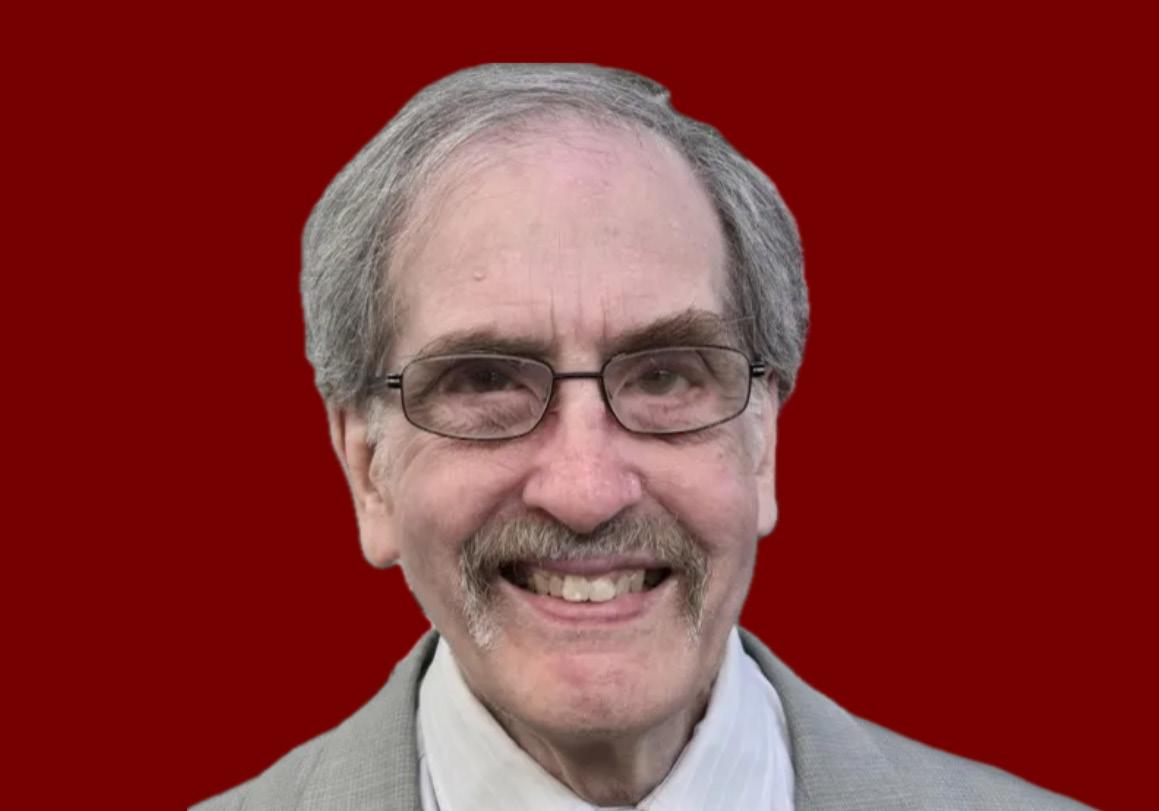
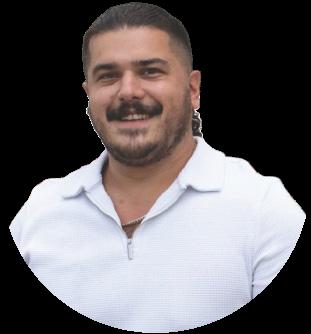

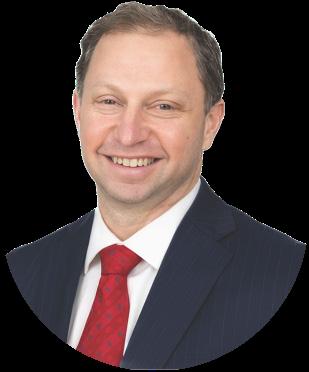
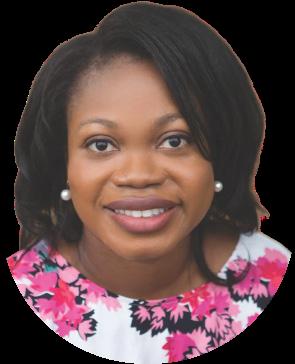
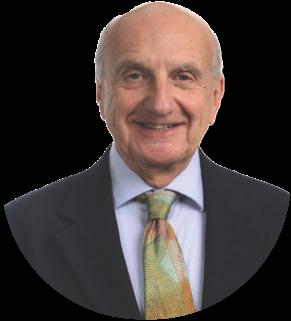
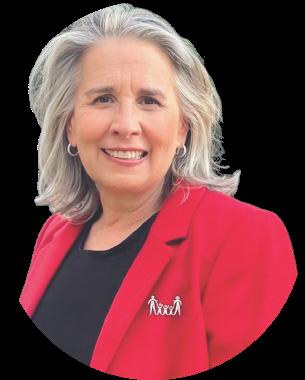
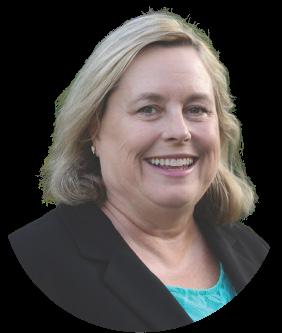
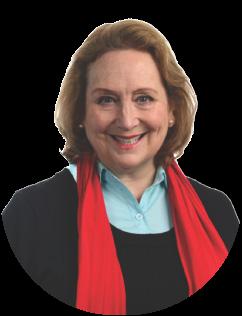
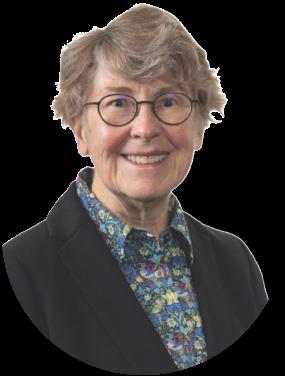
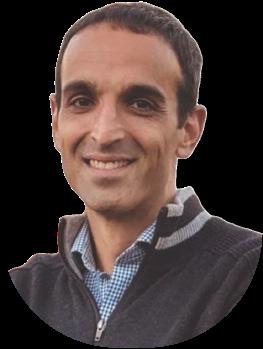
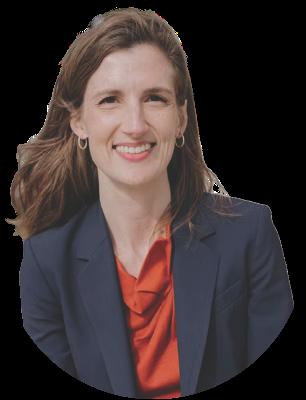
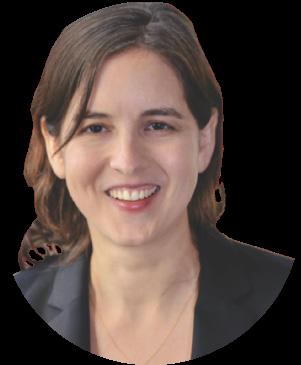
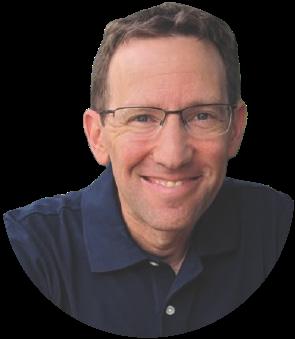
Voters within a ward elect one ward councilor to represent them. In contrast, an at-large councilor is elected by, and represents, the entire city. Tere are two councilors-at-large per ward—identifed by the ward in which they live.
Newton’s School Committee has nine voting members, with one representative from each of Newton’s eight wards. Te mayor serves as an ex-officio member of the School Committee—the committee’s ninth voting member.
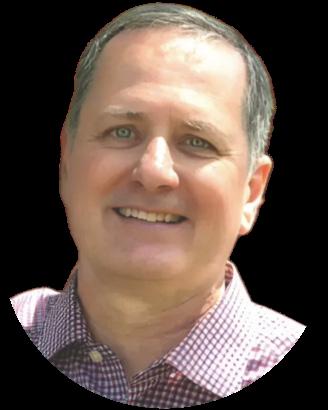
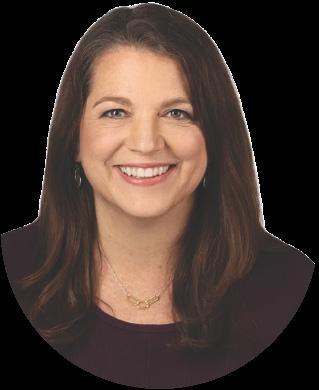
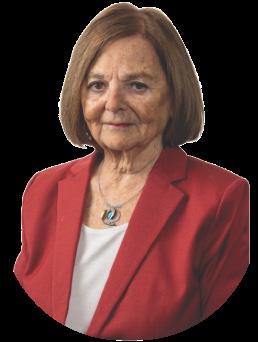

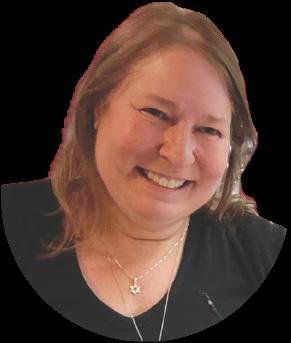


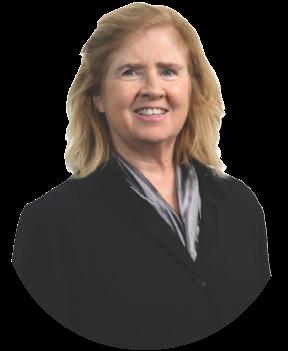

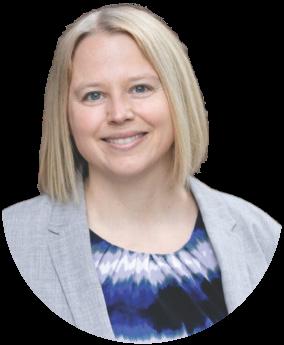


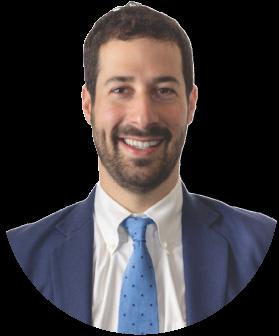
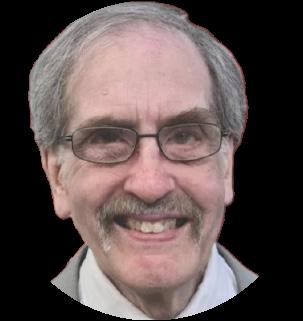
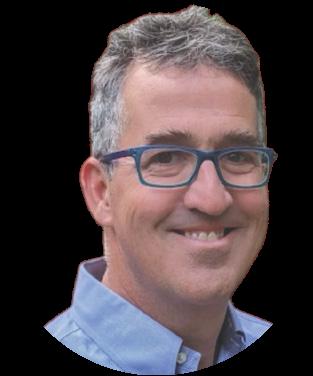
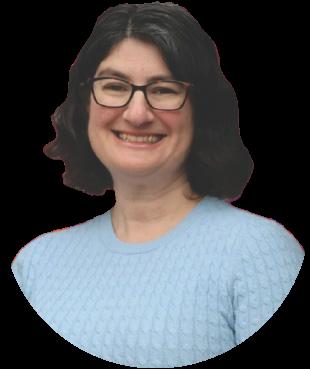

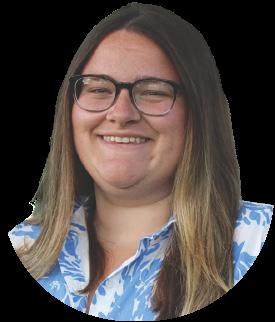
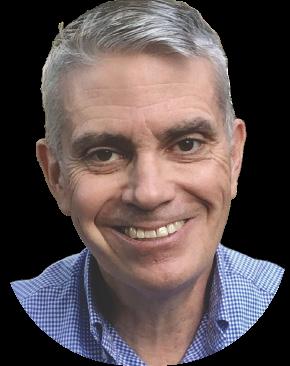

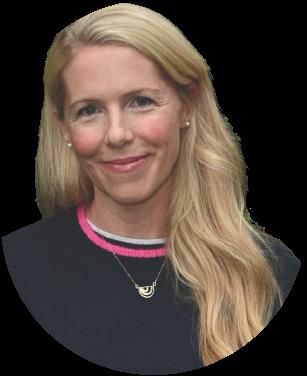
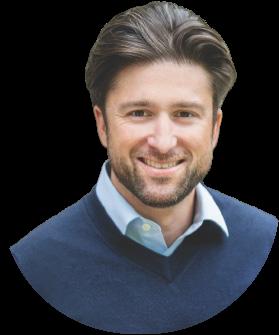
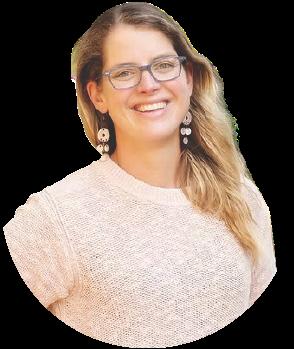



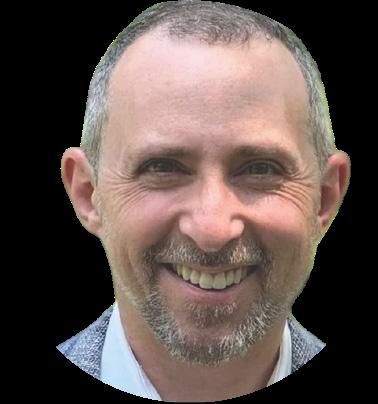
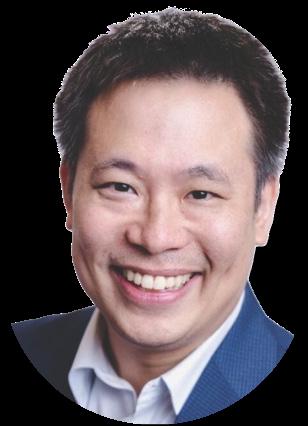
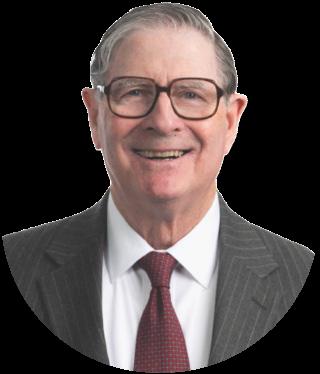


is story was originally published on Oct. 22, 2025.
BY GENEVIEVE MORRISON Newton Editor
Marc Laredo’s October endorsement of a slate of city council candidates was a surprise to some Newton residents, including Garry Miller, a Ward 7 city council candidate.
“When I talked to him, it never even crossed my mind that he would be endorsing candidates,” Miller said. “So it was like, of course, I’m not gonna seek your endorsement, because mayoral candidates don’t do that.”
Laredo broke from precedent by mailing voters a slate of endorsed candidates for the Newton School Committee (NSC) in July. His seal of approval on his chosen candidates, as well as the more expected but similarly contentious Newton Teachers Association (NTA) picks, have set the stage for races that will overhaul six school committee seats and ve city council seats.
“I’ve given my opinion—the voters will make the decision,” Laredo said.
In local elections, the role of endorsements is to make choosing easier for voters, according to Michael Hartney, an associate professor of political science at Boston College who researches local politics.
When candidates align with interest groups or with each other, these endorsements o er voters more information about what candidates actually stand for—a valuable contribution in nonpartisan races in which typical identi ers like Democrat or Republican don’t apply, Hartney explained.
“Local elections are really dicult to create democratic accountability for the voters because they just don’t have a lot of information,” Hartney said. “ e more that you have candidates running as slates, interest groups, or other elected of-
cials signaling very publicly which candidates they endorse, I think those things all actually do provide information for voters that can help them choose the candidate that better re ects their priorities.”
But Sean Roche, a candidate for the Ward 6 at-large city council seat, said he worried that if candidates accepted an endorsement from Laredo, they wouldn’t be able to act independently from him if elected.
“We need to have good process and good openness and accountability, and that’s the thing that we risk losing with crony politics—if the councilors and school committee members feel like they owe their positions because they co-campaigned with the mayor,” Roche said.
Roche said he didn’t seek an endorsement from Laredo and didn’t expect to get one due to past policy disagreements.
e NTA entered the conversation when it released its own NSC endorsements on Oct. 8, backing Jenna Miara in Ward 5, Mali Brodt in Ward 6, and Jim Murphy in Ward 8. Hartney added that these kinds of endorsements are typically advantageous to candidates.
“In my research, I show that teachers’ union endorsements are incredibly helpful to the candidates receiving them,” Hartney said. “A union endorsement serves as a positive cue for many voters, who tend to associate teachers with trust and competence.”
But that dynamic doesn’t seem to be playing out in Newton this year. Of the 12 school committee candidates, just three sought an endorsement from the union.
Incumbent Alicia Piedalue, running unopposed for the Ward 7 NSC seat, said she didn’t seek an endorsement because she wanted to make sure voters knew she would bargain with the union impartially.
“I just want to be independent in my decision-making,” Piedalue said. “While I’m confident I can be independent no matter what the endorsements look like, I want it to also appear independent. ”
Ryan Normandin, a teacher at Newton South High School and the union’s second release o cer, pushed back on that notion, saying that it’s hypocritical to avoid the union’s endorsement while embracing that of Laredo, a prospective mayor, as Piedalue and seven other candidates have. In Newton, the mayor has nal say over the budget, and for Normandin, that could be just as much a con ict of interest for NSC members as a union endorsement.
“It is a strange and kind of contradictory position to embrace the endorsement of someone who you’re expected to push back against, but say that, it’s a con ict of interest to accept an endorsement from another organization in the city,” Normandin said.
Victor Lee of Ward 8 is another Laredo-endorsed school committee candidate who didn’t seek the NTA’s backing. To him, the di erence between the two types of support is clear. e support of the union could impede his ability to bargain independently, whereas the support of the mayor could be a boon to compromise within the committee when Lee disagrees with him.
“One is a textbook con ict of interest with a fundamental core responsibility of a school committee member,” Lee said. “ e second one—it’d be incredibly stupid for the only person whose endorsement I decline to be the person who I’m gonna have to potentially sit down next to as one of the nine voting members on a school committee.”
Lee views Laredo’s support as particularly important given the mayor’s role in the NSC as a voting member and the nal arbiter of the city’s budget. “ e person who probably will become the mayor has, whether we like it or not, almost unitary
executive degrees of power over the budget at the end of the day,” Lee said. “No reason to tick him o at this point in time. I’d rather work with him and partner with him.”
According to Hartney, the NTA’s candidate questionnaire may provide some further explanation for Piedalue, Lee, and others’ hesitancy to align with the union.
The union asked all school committee and mayoral candidates about bargaining, health insurance, kindergarten aides, and how to avoid another NTA strike in the future.
According to Hartney, these questions are at odds with the reasons that voters tend to give for preferring union-backed candidates—that the union’s endorsement goes to candidates that support students. Instead, he said, the NTA’s questions projected a focus on labor issues.
“Most of the questions are around healthcare, collective bargaining, or things that really are not principally about, ‘Where are student academic outcomes today relative to during the pandemic?’” Hartney said. “ at matters, because when I’ve surveyed voters about what they think the union endorsement means, the voters will say, ‘Well, we think the candidate who’s endorsed by the union is going to be more likely to be focused on issues related to student achievement.’ at may not be the case.” at questionnaire was just the rst step in the NTA’s endorsement process. Once candidates submitted their responses, an executive committee made a recommendation, before opening up voting to the union’s nearly 2,000 members.
In contrast, Laredo’s process was less systematic, as he didn’t speak to every candidate before releasing his endorsements. is is according to e Newton Beacon’s
reporting that Laredo endorsed candidates John Chaimanis and incumbent Josh Krintzman for the Ward 4 at-large city council seat, before speaking with their opponent, Cyrus Dahmubed.
Normandin called Laredo’s less rigorous approach to endorsements worrying.
“His lack of willingness to kind of meet with all the candidates and hear from everyone before making the important decision worries me because I worry he won’t do that as mayor as well,” Normandin said.
Laredo defended his process by saying that his personal and professional relationships were the basis for his endorsements. As an individual and not an organization, he said, that’s justi cation enough.
“This is not a process like a newspaper should go through, where they have no allegiance to anybody, they weigh all the candidates, and then they say, ‘Based on interviews with everyone, these are our endorsements,’” Laredo said. at’s not how political endorsements work. In each case, I gave careful thought to the people I was supporting. Some I worked with in the past, others I’ve known personally or professionally for many years.”
Additionally, he emphasized that his endorsements won’t decide the elections—voters will.
“Regardless of who the voters choose, I will work collaboratively and effectively with whomever is elected,” Laredo said n
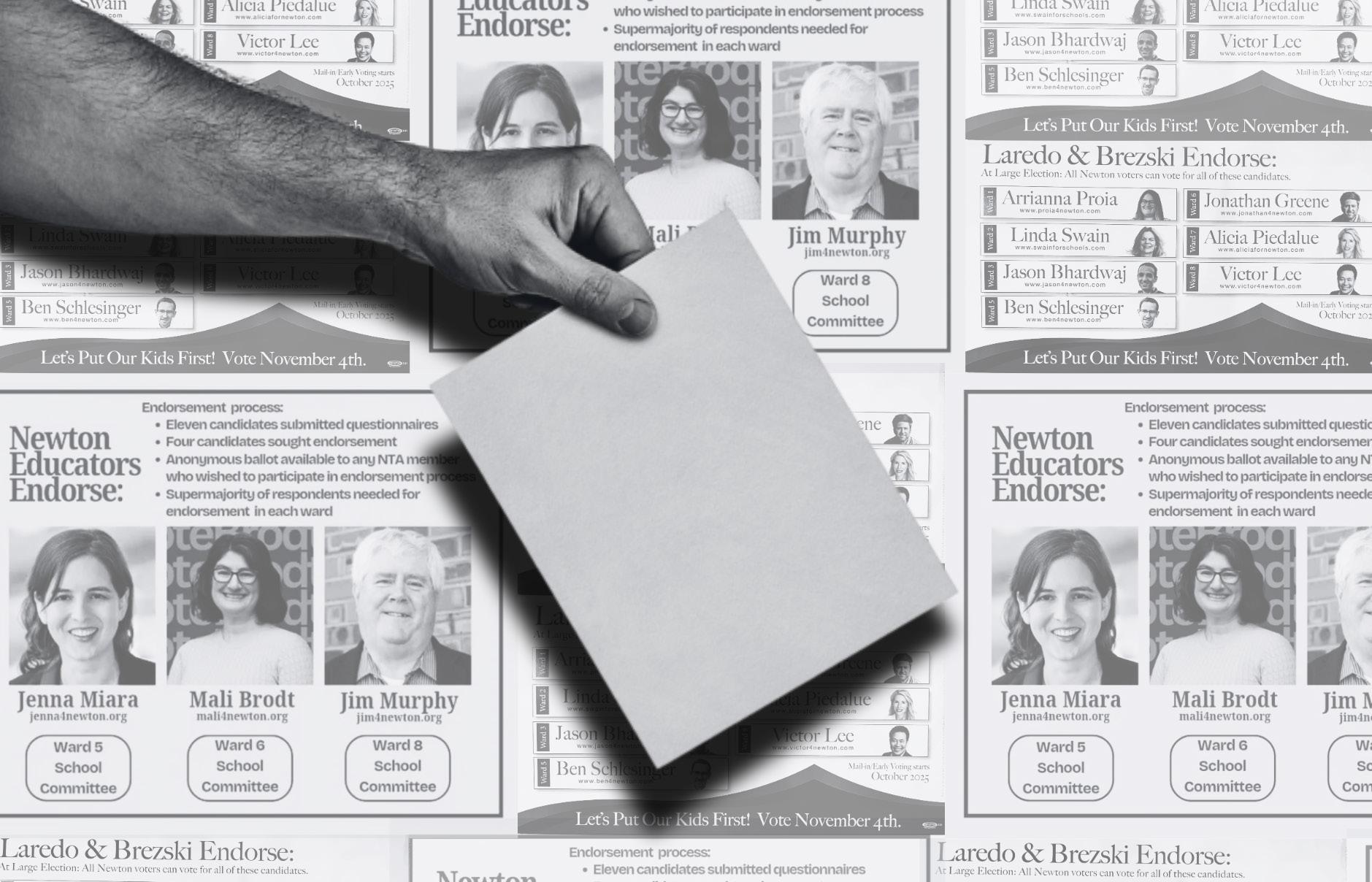
is story was originally published on Oct. 16, 2025.
BY WILLIAM CONNORS For e Heights
BY KYLEE GREENE For e Heights
If elected, Lisa Gordon’s primary goal is to serve the community by ensuring all voices are heard, regardless of whether she shares their views.
“I really believe in a representative model of city government,” Gordon said. “I think that we are elected to represent our community, and that is vitally important. Whether I share the views or I don’t, I will listen and do the best job that I can to make sure that all voices are heard.”
Gordon models herself as a candidate for all voters, aiming to overcome political di erences to support the widest range of residents within her district.
“I’m a candidate for all residents,” Gordon said. “I know what it’s like to give young people true agency, and I am a huge believer in that … One of the things
I really would like to do if I get on the city council would be to work with our high school students, college students in the area to really show them how important it is that our young people are involved.”
Gordon is also cognizant that the needs of the elderly residents of Newton may be very di erent from those of the generation she has raised her kids alongside.
“My mother still lives here,” Gordon said. “I am extremely aware of what the experience is like, having invested in the Newton community and now being at the part where you’re not sending kids to school anymore, and what that does and what that feels like.”
A life-long Newton resident, Gordon is an active volunteer in the community and believes that experience has given her the ability to communicate across di erences.
“I learned very early on how to collaborate with all di erent types of people, and I’m a huge believer that true collaboration is the best way forward in almost all situations,” Gordon said.
When asked about the issues she found most pressing, Gordon pointed to
school budgeting and supporting small businesses.
“I think we have real budgetary issues, and I would link that to supporting our schools,” Gordon said. “It’s really important as a community that our schools are supported. I feel that schools and local businesses are the two big pillars of our community, and they both really need to be supported.”
Gordon also nds it of the utmost importance to support environmental acts that a ect many of Newton’s bestknown natural resources, including Newton’s most famous bodies of water.
“Beloved landmarks like these do not exist for as long as they do without the tireless work of groups like Bullough’s Pond Association, Friends of Crystal Lake, Crystal Lake Conservancy, and it will be my chief priority that these constituents feel heard and are listened to,” wrote Gordon on her website.
Gordon is even interested in engaging with the Boston College community, from its Newton campus full of newly eligible voters to the wider Chestnut Hill community and its students who may be interested in politics and policy.
“I would love to say to the BC community that if you’re all interested in any kind of local politics or thinking about politics for the future, if I get on the council, reach out,” Gordon said.
“I would love to speak with you and see what your interests are, and maybe there’s some opportunity for us to work together.”
To Gordon, representing all aspects of the Newton community—from its businesses to its residents, schools, and environment—is essential to a successful term. But most importantly, she hopes she can be seen as a trusted candidate for Ward 6.
“I would like to see that I help with transparency, that people at the end of the two years know how I voted, and know where I stand,” Gordon said. n
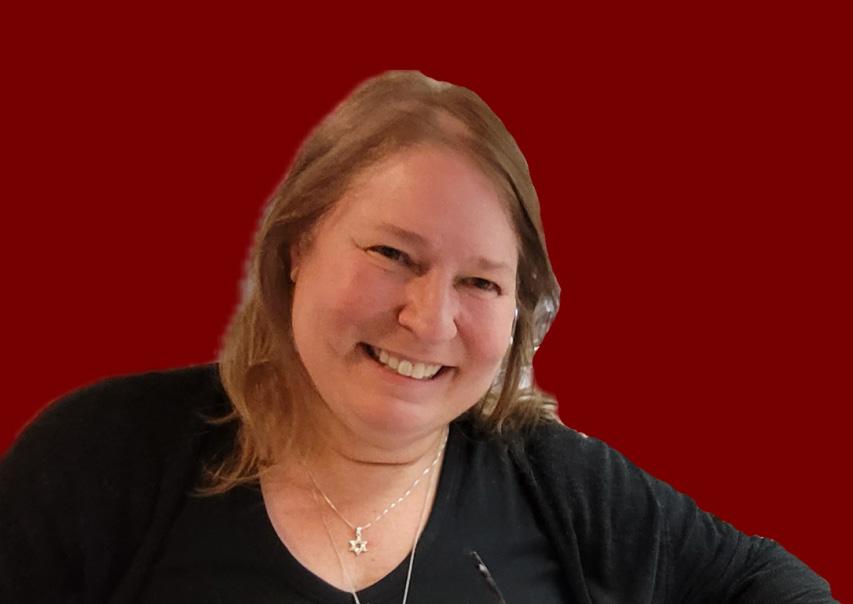
is story was originally published on Oct. 5, 2025.
BY PATRICK LUNDREGAN For The Heights
With a background in education, Ward 6 Newton School Committee
candidate Mali Brodt hopes to use her experience to repair what she sees as a damaged relationship between teachers, parents, and the school committee.
Brodt, who has spent two decades working in education in Boston, Dedham, and Reading, believes that her experience in the classroom provides her with an important perspective.
“I have a unique perspective to mend those rifts and steer [Newton Public Schools] in the right direction,” Brodt said.
After spending 16 years as a middle school teacher, Brodt transitioned to student counseling upon observing an increase in social-emotional and mental health challenges in students, according
to her website.
Brodt believes NPS has been plagued by problems for the last five years, spanning from last year’s historic strike initiated by the Newton Teachers Association (NTA) to a growing budget de cit to the unpopular implementation of multi-level classes.
Part of this problem, according to Brodt, is a rift between the school committee and Newton families brought about by a lack of communication and worsened by committee members making disparaging comments about the union and teachers.
“The way that teachers and the union were talked about from the school committee was very negative and combative,” said Brodt.
Forging a strong, collaborative partnership begins with changing the rhetoric, explained Brodt, and she believes she can help mend the rift between all parties.
NPS also faces a looming budget de cit of $4.5 million. While funding for NPS increased by over 3 percent from last
year, the $292.6 million allocated was less than what Superintendent Anna Nolin hoped for.
“NPS has been underfunded,” Brodt said. “It has been funded at lower rates than other departments and in our peer cities and towns.”
To achieve generational equity, Brodt believes adequate funding is necessary to address the needs of today’s students.
“What we need today requires more funding than we already have, and it is our responsibility to make sure [students] are getting what they need to thrive,” Brodt said.
Lack of transparency, Brodt believes, has played a big role in the budget crisis. In Brodt’s eyes, creating sustainable funding means improving communication on why certain departments are getting particular funding. Addressing this allocation will go a long way in addressing mistrust between parents and teachers, Brodt explained.
e mayor, the city council, and
Multi-level classes have received some criticism since being implemented in 2021.
“If Newton wants a successful multi-level class program, it needs to restart, with clear reasoning behind it,” Brodt said. n
school committee need to be much more transparent about what funds the city has, how they are used, and what the needs are,” Brodt said. Brodt stated that the rollout of the multi-level classes program at the same time teachers were o ered per diem was ill-advised. Brodt also said that teachers did not have a full understanding of how to operate in this new class structure due to a lack of resources.
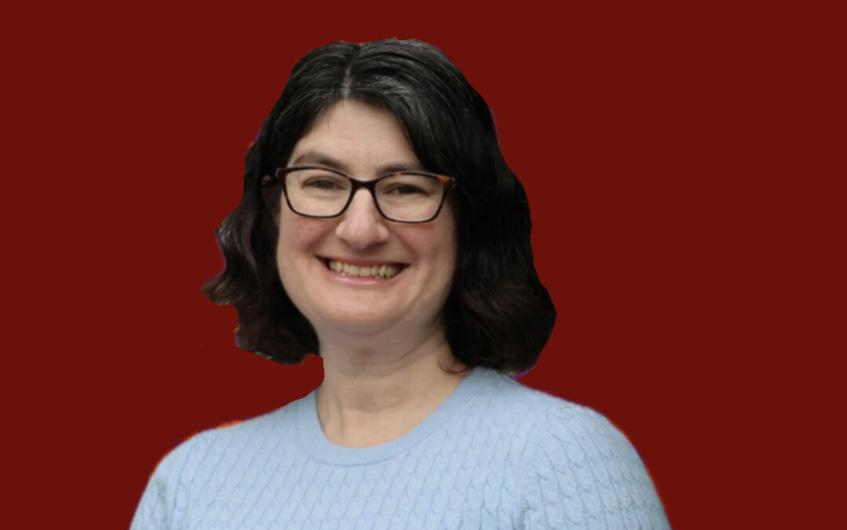
This story was originally published on Oct. 5, 2025.
B Y D ANICA B ERGEN
For The Heights
Jonathan Greene grew up in the Newton Public Schools (NPS) system. Now, the first-time candidate hopes to improve the institution that has made such a formative impact on his life.
Greene emphasized the importance of investing in students, especially those with special needs. As someone
with dyslexia, Greene understands the significance of active, goal-based support.
“When my spelling scores were not very good, the question [my parents] asked was, ‘How do we provide Jonathan with the support that he needs so that he gets great grades,’ not ‘How do we lower the standard for what we think achievement is for Jonathan, so that we can declare success?’” Greene said. Greene aims to achieve this by establishing specific, measurable benchmarks for NPS students.
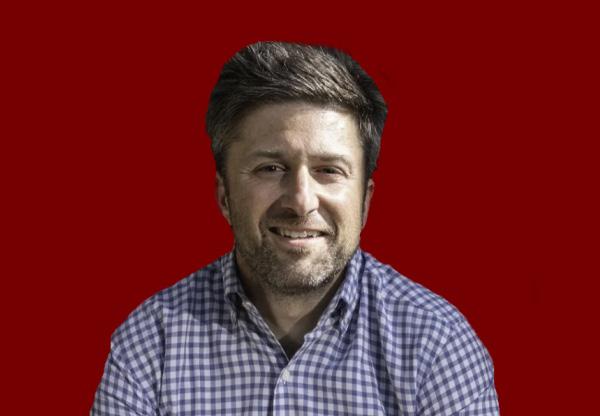
“We need to know whether we’re winning and doing right by our kids so that we can make adjustments and we can continue to improve,” Greene said. “That’s hard to do if you don’t have any data.”
That data, Greene believes, will standardize the curriculum between NPS’ 24 schools and enrich the learning of all 11,000 NPS students.
“Kids should not show up from multiple elementary schools and get to middle school and have the math teacher look around and say, ‘It doesn’t feel like all these kids came from the same school system,’” Greene said.
Part of creating a meaningful support network is fostering a strong NPS community, Greene said. For this reason, keeping kids with special learning needs in the standard classroom as much as possible is one of his critical goals.
“I also see a lot of value—and I remember from my own experience— in keeping kids [with special learning needs] in class to the degree that you can,” Greene said. “Learning with your peers is way better than learning in someplace more isolated in the context.”
In addition to voicing his support for student learning, Greene firmly
believes in supporting the rights of NPS teachers, especially after the 2024 teacher strike.
“The idea that this should be a great place to come build a career, and the teachers should be paid appropriately,” Greene said. Greene said he wanted to invest in NPS teachers, emphasizing not only salaries and benefits, but also in-classroom support, curriculum support, and professional development opportunities.
“What it feels like to be a teacher in the school system isn’t just one thing,” Greene said. “It’s a holistic, balanced approach to how we think about driving excellence in the school system.”
Not only does Greene’s personal experience within NPS drive his passion for the institution, but his background in management has prepared him to fulfill the needs of thousands of people, from students to teachers to administrators.
“The Newton school district is a big organization, and the school committee is effectively the board of directors for the Newton schools,” said Greene. “This is not a small organization that we’re talking about needing to lead and partner with the superintendent to set direction on, and that feels
familiar to me.” Greene previously worked for Wayfair before starting his role as chief digital and technology officer at US LBM.
“Much of my career has been about setting strategy and driving change within an organization,” Greene said.
Greene believes that his experiences, skills, and voice have the power to do just that at NPS, which is especially important in a modern era where education has become increasingly complicated, social support has dwindled, and learning has been inhibited.
“The schools are not the same as they were even just 10 years ago, with the advent of social media, with the challenges of social interaction post COVID, with the breadth of the types of students that we take, that we provide services for in schools,” Greene said.
According to Greene, these changes call for a school committee member who is committed to student support, has the personal experiences to empathize with NPS students, and can put ideas into action.
“I don’t think it’s lost on anybody in this race that six new school committee members and a new mayor gives us a chance to start over,” Greene said. n
is story was originally published on Sept. 14, 2025.
B Y S OPHIA G ALLON Heights Sta ff
With a 2024 teacher strike disrupting Newton Public Schools (NPS), as well as increasing fiscal challenges, a candidate’s success can depend on their composure in an increasingly tense environment. Linda Swain believes she is just the right person for the position.
Current School Committee Ward
2 Chair Chris Brezski announced in June that he would not be seeking reelection and endorsed Swain for his seat.
Swain’s interest in and appreciation for the education system stem from her mother, who was a special education teacher. Though her career has been focused on marketing, she’s had first-hand experience with Newton schools for the past 20 years, trusting the system to provide a quality education for her own children.
“My mother was a special education teacher, and I grew up with a strong appreciation for the role of public schools in shaping opportunity and community,” wrote Swain on her website.
Swain plans to advocate for a more efficient NPS budget—one that would ease the challenges the district faces in providing each student with the best education possible.
“I feel [my children] received a great education, but certainly there were opportunities for improvement,” said Swain. “Whether that’s in having reasonable class sizes, implementing that Multi-Tiered System of Support, providing the social and emotional support that our students need to thrive, competitive salaries and benefits for educators and staff, improving our special education services, enhancing curriculum and assessment, and continuing to offer the depth and breadth of classes—they’re all competing priorities.”
Budgeting issues have sparked conflict between educators and administrators in the past, resulting in a two-week-long teachers’ strike that shuttered schools. While an agreement was reached, Swain believes the relationship needs to be repaired.
“I believe we have an opportunity to rebuild relationships and improve transparency,” said Swain.
According to Swain, a prominent concern among Newton parents is that their children are either not being
challenged enough or are struggling without proper support.
“I’ve spoken to many parents and they’ve expressed concerns that their kids aren’t always getting the right level of challenge or support that they need,” Swain said.
Swain believes the new Multitiered System of Support (MTSS) and Math Pathways programs being introduced to NPS next school year will help with this issue.
“The key is each student receives the right level of support—whether they need extra challenge or support—and that there is fluid movement between pathways when a student is ready,” Swain said. “MTSS really helps NPS provide each student with what they need at the right time, whether that’s a greater challenge or extra help so that all students can reach their potential.”
With 23.5 percent and 9.1 percent of Newton’s population made up of immigrant and non-citizen communities, respectively, Swain believes that NPS should support students who feel threatened by immigration enforcement.
Kids need to feel safe while at school and getting to and from school,” said Swain. “It could also limit opportu -
nities if kids don’t feel safe participating in extracurricular activities.”
Swain proposed possible solutions to what she sees as heightened fear surrounding immigration policy.
“We could consider adopting several policies, for example, making our schools a safe zone, meaning that immigration enforcement actions are strongly limited or prohibited on school property,” Swain said. “We could also consider a policy requiring schools to
notify parents, students, and staff when immigration enforcement agencies are present at a school.”
To Swain, an excellent education must provide the tools to regulate mental health and holistic wellness, promote student safety and comfort, and prepare students to pursue their goals successfully.
“Excellence means that every NPS student is reaching their full potential,” Swain said. n
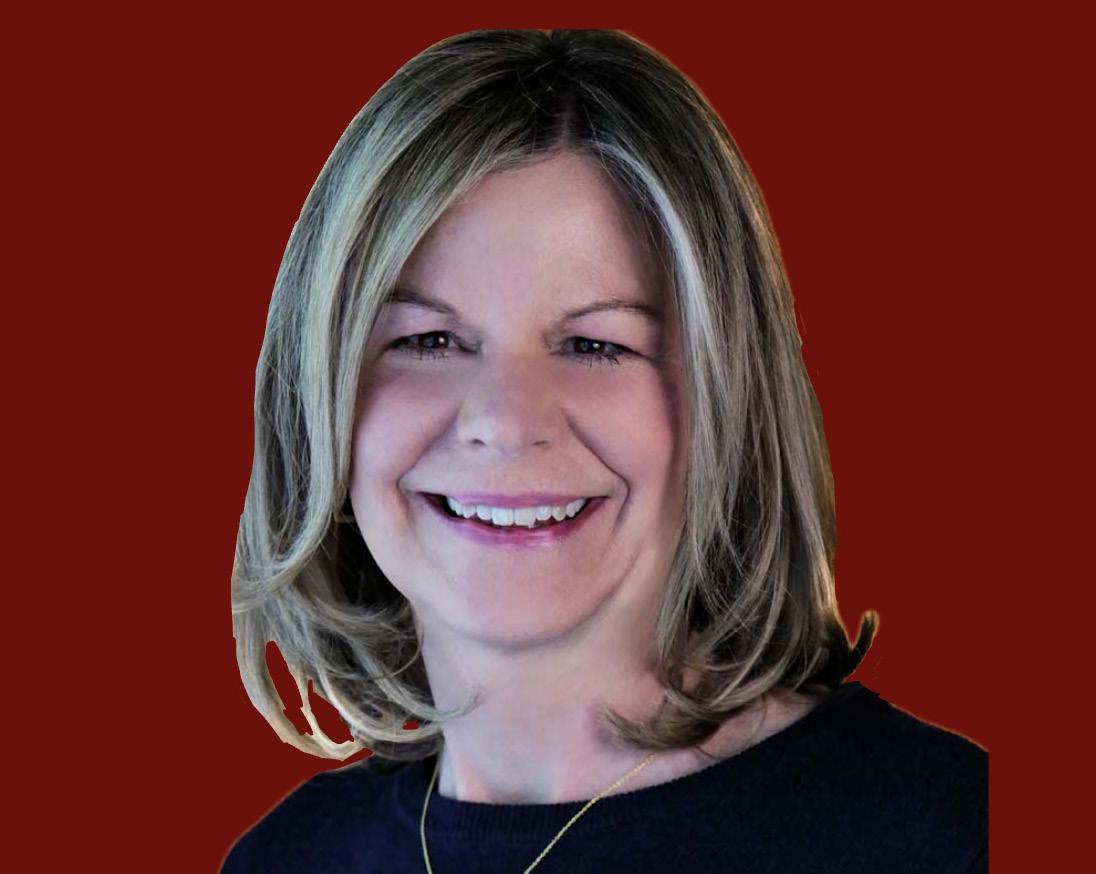
For Ward 2 Representative
is story was originally published on Sept. 14, 2025.
BY LANEY MCADEN Assoc. Newton Editor
Christine Fisher believes that a focus on resource optimization and commitment to student outcomes makes her the ideal candidate for the Ward 2 school committee seat.
Fisher and her family moved to Newton from Ohio two years ago. As a parent to two current Newton Public Schools (NPS) students, Fisher expressed her delight in discovering that Newton’s reputation as a center of education matches reality.
“We think that Newton’s approach of really looking at our kids as whole children and caring about both their academic and social-emotional needs is really important and has been really valued by my family,” said Fisher.
Yet Fisher sees where improvements could be made and believes that optimizing resources is necessary for making NPS even better.
“How do we optimize our resources to achieve our mission for schools?” Fisher said.
After obtaining a degree in computer engineering from Queen’s University, the bulk of Fisher’s career was spent at Procter and Gamble, a consumer
packaged goods company in nance and strategy.
“The question is how to use our resources to improve student outcomes,” said Fisher. “My background, both on the computer side, but more, I would say, on the nance and strategy side, really helps enable that.”
Fisher explained how she was able to utilize her technology and computer backgrounds in her positions as CFO and COO. e skills she gained helped her begin her education-based technology company, Possip.
Possip is a platform that serves over 1,000 schools nationwide, providing families and educators with channels for feedback, communications, and data on student learning, according to its website.
“I understand what it takes to build systems that work for schools and how to bridge the gap between families, sta and leadership,” Fisher said.
Fisher also serves on the board of Temple Shalom and Newton’s Cabot Elementary School Council, and she is a member and volunteer coordinator for Rock Voices Newton, a local community choir.
Her run for school committee merges those two backgrounds. According to her website, she’s intent to “develop clear policies and practices that help students use technology in healthy, balanced, and secure ways—supporting learning while
protecting well-being.”
Fisher believes NPS’ choices regarding cell phones have been bene cial to students.
“Newton schools have done a great job of implementing some increased policies around cell phones in the last few years, and we’re seeing great impact from those policies,” said Fisher.
But AI poses a new technology challenge, explained Fisher.
“I want to make sure that we’re now diving into policies related to AI,” said Fisher. “Both in what our students can use for that, as well as what the sta should, and when they should be using it, and when they shouldn’t.”
e biggest constraint NPS faces is a lack of money and resources, Fisher said. ere’s no easy solution when it comes to the budget,” said Fisher. “So we really have to be looking hard at all aspects of the budget to understand: Are there areas where we can optimize and then make tough choices on the components that are discretionary?”
For the most part, tough choices should be informed by data and research, but they should also be informed, in moderation, by community perspectives, Fisher said.
“It can be very easy to listen to the loudest voices, and sometimes that’s not re ective of what the community actually feels,” said Fisher. “ at’s so hard
as a leader to know what is an outlier perspective that someone may be very passionate about.”
Fisher believes that part of what allows NPS to serve the Newton community so well is the presence of independent school committee members.
“I believe in improving outcomes for kids, and I think it’s really important that our school committee members have that independent lens and really have that mission priority when I’m here,” said
Fisher. “Every decision I make needs to be about that outcome, needs to be about what we are doing every day to improve student outcomes.”
Student outcomes, Fisher believes, rely on parents and committee members being prepared for tough decisions and conversations.
“We have to be present, and we have to be comfortable having those tough conversations in ways that might be uncomfortable,” Fisher said. n
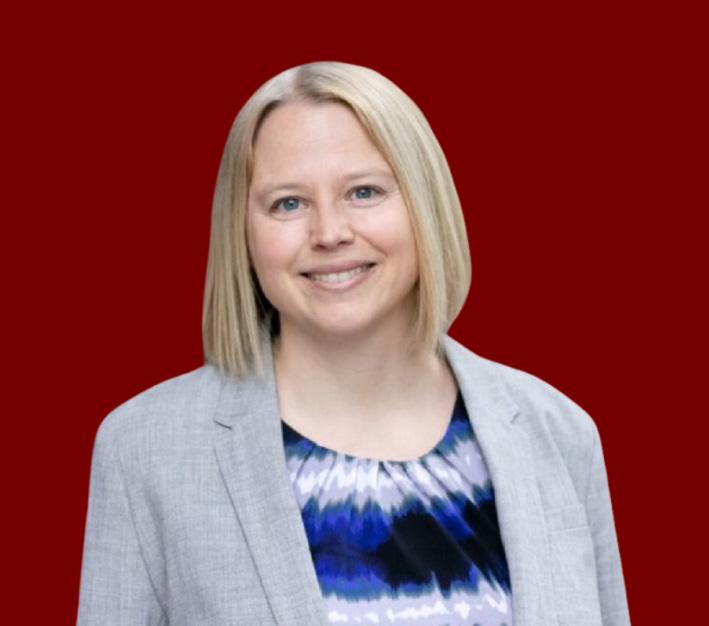
For Ward 5 Representative
This story was originally published on Sept. 28, 2025.
B Y S OPHIA G ALLON Heights Staff
Following a contentious school budgeting cycle, Newton resident, Newton Public Schools (NPS) alumna, and mother Jenna Miara hopes to provide strong leadership in Ward 5
Newton School Committee seat run.
“I have 20 years of working with communities to solve problems together,” Miara said. “I have a lot of experience hearing from communities about what they would like to see improved, and then figuring out the best way to make those improvements together.”
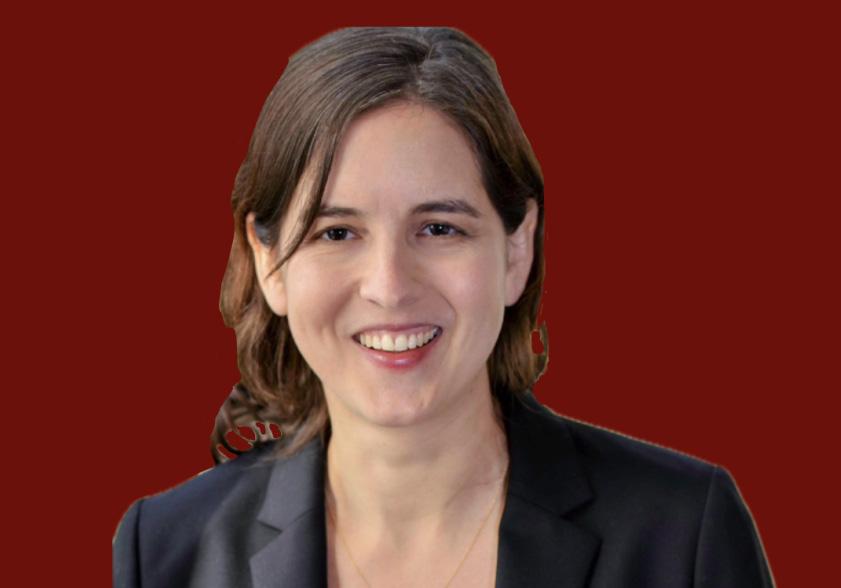
She also believes her experience working with labor unions as a member of a legal services workers union will support her in restoring trust and strengthening partnerships between the teachers and the district.
Miara said her experience as a public interest lawyer and the leader of a nonprofit legal aid fund has lent her expertise in policy analysis and organizational management.
“I’ve been on both sides of the negotiating table,” Miara said. “I think that’s a perspective we’re really going to need in order to make good forward progress between the school district and the three unions that work within Newton Public Schools.”
While the 2024 teachers’ strike in Newton was resolved with a contractual agreement, those terms are up for renegotiation again in 2027. Miara highlighted the need for the school committee to recognize the community’s voices in the next round of negotiations.
“We certainly have to get to work right away to lay a foundation for a much more successful, productive, healthy bargaining situation so that we don’t end up anywhere close to a strike again,” Miara said.
Miara believes the productivity of
negotiations relies on open communication.
“It’s going back to basics,” Miara said. “The school committee and union leadership need to be working all the time to build and maintain open dialogue, transparent sharing of information, respectful sharing of ideas, so that there is the necessary foundation of trust, respect, and shared interests.”
Miara’s campaign also focuses on ensuring each student feels holistically supported while in school. She references the Multi-Tiered Systems of Support that some schools have already implemented as a successful model.
“The idea is that you’re creating a continuum of support so that every student is getting the right support that they need,” Miara said. “For some students, that’s going to be academic support. For others, it’s going to be social and emotional. And for other students, it’s going to be that they need more challenges or more acceleration in certain subjects.”
As both a parent and policy maker, Miara believes implementing more control on cell phone and computer use is key to limiting distractions and
improving educational outcomes as a whole.
“Devices can cause distraction, reduced focus, and decreased stamina for important academic tasks like close reading,” Miara said. “Beyond academics, they can lead to cyberbullying, reduced social skills, unhealthy comparison, and increased levels of anxiety and depression among students.”
Despite the benefits and continued development of technology, Miara preaches a more traditional approach to education where students can completely disconnect.
“I’ve heard from teachers and administrators and students that locking phones up during the day in middle schools has led to a lot of really positive results,” Miara said. “I think we need a similar kind of policy in our high schools.”
Miara believes in tailored solutions to issues impacting NPS, as each faces its unique challenges.
“It’s about looking at what’s already happening in our schools—as every school community is different— then finding solutions that really work for that community,” Miara said. n
For Ward 5 Representative
is story was originally published on Oct. 19, 2025.
As a corporate executive, Ward 5 Newton School Committee candidate
Ben Schlesinger said his experience will lend itself well to dealing with the school committee’s budgeting responsibilities.
e school committee is charged with operating a $300 million budget here,” Schlesinger said. “I think people who have an MBA nancial background understand money, money decisions, and how to make them, and how to think about prioritization—I think that those are all skills that are important.”
Schlesinger has experience in management consulting, marketing, and sales with various firms, tech startups, and companies such as Samsung, McKinsey, Brightstar, and LoopPay. He holds an MBA in management from the MIT Sloan School of Management. He just recently sold his own company, ImprezzAI, and has now been able to free up space for some “dad time,” while he still consults and advises two tech startups in the AI space.
“I have a lot of experience in taking complex problems and working with a variety of stakeholders to nd and build solutions, and then deliver and execute
those solutions,” Schlesinger said. “And I think that that’s a lot of what we’re looking at in the school committee.”
Schlesinger said that the best way to nd solutions in his industry is through an honest, collaborative communication approach, which he plans to apply to the school committee.
“A lot of being an executive is about communicating—communicating within your organization and outside your organization, with your team, people you agree with, people you disagree with,” Schlesinger said. “And I think that I had a lot of experience nding an e ective collaborative communication style that will work well for me in this position.”
As a born and raised Newtonian, Schlesinger is con dent that he understands the needs of his community.
“I think I know my community really well,” Schlesinger said. “I’m hoping we can restore some of the things we lost that might have been good about the schools before, but I know what the people of Newton expect their schools to be. I know what they value culturally, and I feel like I have a pretty good nger on the pulse of the community.”
Schlesinger believes that the e ects of COVID-19 and an increase in class sizes are representative of the school committee’s budget issues, because students’ needs cannot be fully addressed without
the necessary resources. The National Institutes of Health found that anxiety manifested in around 18.9 to 23.87 percent of children during COVID-19 and 15.4 to 39.9 percent in adolescents. And according to an update from Newton Mayor Ruthanne Fuller in 2023, class sizes began to increase around that time due to budget restrictions.
e kids have a lot of needs these days coming out of COVID, and with the anxious generation, the impact of devices, and the increase in class sizes at that moment in time is an indicator that we’re not where we want to be with the budget,” said Schlesinger.
Schlesinger is certain that his experience in management consulting will help navigate these new and important issues and thinks voters will value his demeanor and problem-solving skills.
“I always lead by listening and understanding where people are coming from, trying to connect with them—with their stories and their situations—and then respond to that with both empathy and candor,” Schlesinger said. “I nd that people are refreshed by me just being honest.”
Schlesinger said he engages with the Newton community through coaching around 10 teams a year across baseball, soccer, and basketball. He feels that through his almost 20 years of Newton volunteering and endorsements from
school committee members and city councilors, Newtonians should understand his commitment to the community.
“I’m very honored that I’ve been endorsed by 18 city councilors and six school committee members, and I think that that’s a re$ection of my connections in the city and my understanding of what Newton is about and what folks are looking for in their electoral leaders,” Schlesinger said. At the end of the day, Schlesinger is glad to be part of the buzzing and productive Newton community.
“I knock on doors, and I’m nding people who are changing the world behind so many doors,” Schlesinger said. “We have phenomenal people living in this city.” n
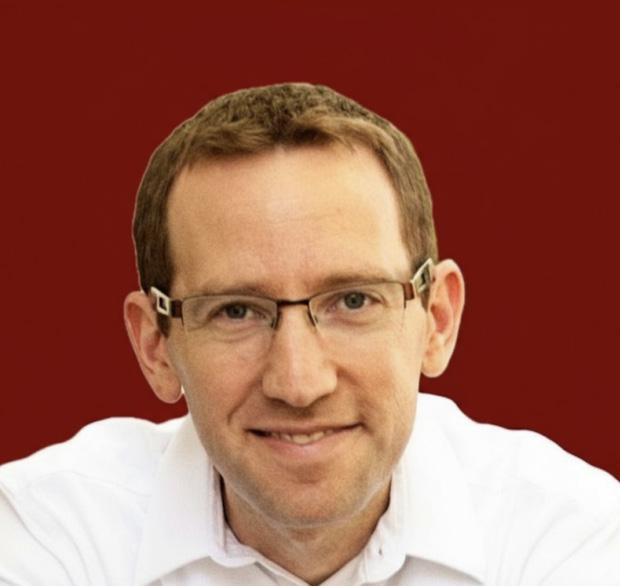
For Ward 8 Representative
is story was originally published on Oct. 26, 2025.
BY LANEY MCADEN Assoc. Newton Editor
With the Nov. 4 Newton Municipal Election rounding the corner, Ward 8 School Committee candidate Victor Lee is committed to student success, preventative problem-solving, and long-term investment.
As a Newton native, Lee spent the rst half of his career working primarily in corporate strategy, nance, and market research, before shifting to education.
Currently, Lee is a full-time doctoral student at Harvard Graduate School of Education, studying education leadership. He also works as a superintendent fellow at the Arlington school district.
“I don’t think there’s been anyone else in recent memory who’s had sort of cabinet-level type experience—or a balance of both education leadership at the system level and private sector—that is trying to get onto the committee and provide some guidance from that angle,” said Lee.
With his experience in education leadership, Lee has committed to refocusing school committee investment on a larger and longer-term scale.
“The important thing, I think, for school committee members and people to understand is school committee members
are responsible for policy and district-wide decision making,” said Lee. “It’s not micromanaging individual classrooms or even individual buildings.”
Lee broke his campaign down into three parts, the rst being a commitment to student success.
“I believe that there is a need for every student … having as much opportunity as they can get to achieve academic excellence,” said Lee.
The breakdown of Newton Public Schools (NPS) rigor, Lee emphasized, has decreased opportunity. Newton has historically been lauded for its quality education, and while this has remained an expectation of parents, teachers, and administrators alike, many have expressed discontent, according to Lee.
!e rigor of the school system has kind of slowed down a little bit or not necessarily gotten to the level of expectation that a lot of people in the community are expressing to me,” said Lee.
Lee wants to refocus on academic success in a way that is sustainable. !is comes from obtaining and retaining adequate funding, one of Lee’s focuses.
Productive dialogue needs to be had now lest another situation like last year’s budget crisis occur and inhibit new successful solutions, Lee said.
“We’ve got a lot of structural challenges that exist, but I do think we need to nd ways to be creative in getting more
funding to the school system, because the path that we’re on right now is going to put us in deep holes in three to ve years if we’re not careful,” Lee said.
Another pillar of Lee’s campaign is active, data-driven decision-making.
“Looking at a more objective and more comprehensive perspective on how the district is performing is important,” said Lee. “Education tends to lag the private sector by somewhere between ve to 10 years in terms of practices, so there’s a lot of things we’ve learned in that sector that could be at least explored further for the education side.”
!is comprehensive approach is part of why Lee nds the current mixed-level classrooms to be such an issue.
The subject of intense criticism, mixed-level classrooms aim to resolve achievement gaps that disproportionately impact Newton’s minority students. Lee agrees with the intention on a personal level, as his doctoral program focuses particularly on this idea of balance and opportunity. He has taken issue, however, with the program’s e ect on students.
“In my opinion, what we’ve kind of done is draw a weird metaphor where we’re trying to close achievement gaps, but we’re basically holding down the ceiling so that other people can try to catch up,” said Lee.
Lee’s solution is an opt-out program that would hold all students accountable to a certain level of success.
“We’re going to show you that we expect you to be able to perform at that next higher level, because you demonstrate that you’re capable of doing it,” said Lee.
Student success also made Lee unsupportive of the Newton Teachers Association strike in early 2024.
“I’m not thrilled with the way the strike lasted for 11 days, especially because it kept kids out of school for so long, and on the heels of a very di cult and delayed return to school policy for COVID-19,” said Lee.
Lee believes similar issues in the future require di erent methods of resolution.
Lee is determined to approach problems with this same preventative perspective.
“Because of my understanding of multiple sides, there’s an opportunity to perhaps reduce the chance of things getting so bad that we have another strike happen in two years, one which [could be] incredibly divisive for the community,” said Lee.
He believes that discourse is not only part of a school committee position, but a tool for his own campaign.
“I’m happy, and grateful to my opponent for running because I think this kind of discourse has been missing,” said Lee. n
“Going forward, we have to try to at least recognize and appreciate that they do have that perspective and nd ways to kind of address it earlier, rather than waiting until the last minute when negotiating has to happen to bat all these things out,” said Lee.
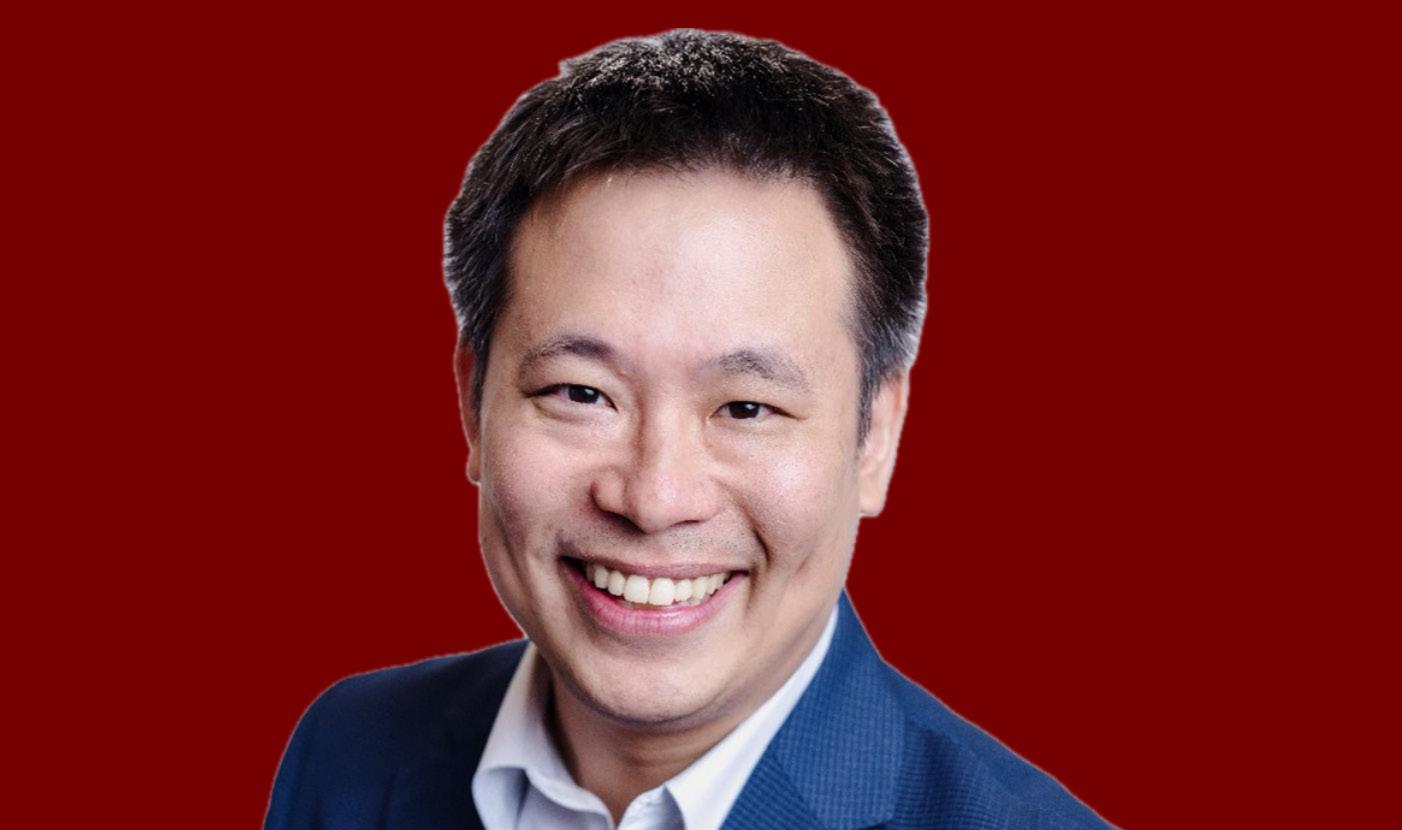
For Ward 8 Representative
is story was originally published on Oct. 23, 2025.
BY THOMAS KENNEALLY
For e Heights
With nearly 40 years of experience in education, Jim Murphy aims to give educators a stronger voice in Newton’s policymaking by running for a seat on the Newton School Committee (NSC).
“I’ve spent an entire career encouraging students that it’s important to stay involved in their community,” said Murphy.
It appears Murphy is now taking his own advice.
the public on union contracts if elected.
!ere has to be communication,” said Murphy. “It has to be ongoing.”
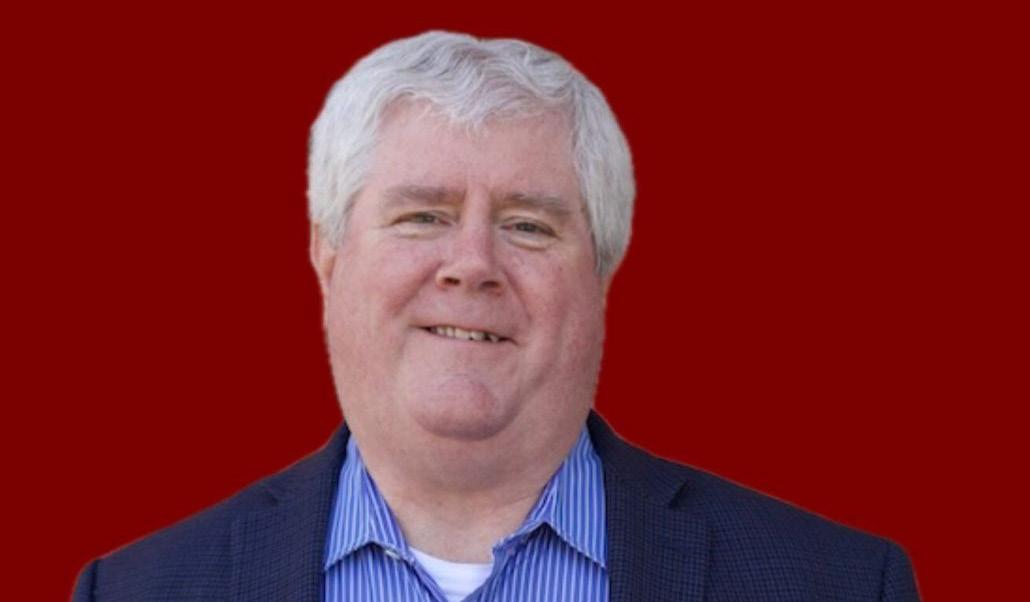
“I found myself approached by a couple of parents to do just that,” Murphy said.
Murphy said the idea of running had been in the back of his mind for over a decade. During his goodbye speech to the Parent Educator Council in Newton, when he was a member, he suggested that he wanted to run for the NSC.
Motivated by the issues related to the 2024 Newton Teachers Association (NTA) strike and continued budget strains on Newton schools, Murphy decided to throw his hat in the ring.
“I would say the strike and the budget are probably the two things that were most immediately responsible for my getting involved,” Murphy said.
!e 11-day strike was the longest in the city’s history and deepened Murphy’s suspicion of Newton Public School leadership and their ability to negotiate with sta unions.
“It became pretty clear to me, you know, that the problem was a school committee that was not negotiating in good faith, ” Murphy said.
Murphy hopes to facilitate greater communication and transparency with
Murphy’s plan to achieve further transparency ties into another reason for his campaign: lling the school committee with more educators. Murphy believes the lack of people with teaching experience impedes a school committee’s ability to function at its best.
“I think the school committee needs more educators—people who know what it’s like to stand in front of a classroom and see how policy plays out with real students,” Murphy said.
Murphy also promised that his being endorsed by the NTA would not create bias when negotiating with them— something that his opponent, Victor Lee, disagrees with.
“In my race … I am the only candidate who can say that I have no con ict of interest or a liation (past or present) with either the NTA or MTA [Massachusetts Teachers Association] unions,” Lee wrote on his website.
National issues also play into Murphy’s campaign, as he is committed to reviving an idea of civic education he believes has been lost in America’s public education system.
“We have really pushed America the idea that, you know, going to school and getting an education is a very individual thing, and schools’ job is to train people, equip them for the marketplace,” said Murphy.
Instead, Murphy wants to reinvest in teaching children the value of helping others in the community and being an active citizen in a democratic nation.
“Schools are the rst and most important place where a kid learns what it is to live and be part of a community outside of one’s family,” Murphy said.
Built around his belief that someone who has helped teach in and run schools would be best suited to create policy and mend relationships, Murphy’s campaign, he emphasizes, is not about him.
!is isn’t about ambition,” Murphy said. “It’s about service.” n
This story was originally published on Sept. 19, 2025.
BY GENEVIEVE MORRISON Newton Editor
On Sunday, Sept. 7, several Newton parents received an email from a source titled “Newton Needs Change.” !e subject line read: “Newton teachers union announces- Kids Don’t Come First !” Contrarian Boston, a Substack blog, reported the secondhand quote by Newton Teachers Association (NTA) President Mike Zilles from his speech at the district’s convocation, saying that students should be “in the mix” but not put rst.
Zilles con rmed that the quote was true but missing context. He told e Heights that in his speech, he had been encouraging teachers to schedule their lunch breaks before scheduling those of their students.
“!e implication is, if you say the students come rst, then we come second, and I don’t want teachers to think about themselves that way,” Zilles said.
!e following day, Enrique Rosero, a Newton resident and Newton Public Schools (NPS) parent, sat in front of the Newton School Committee, urging a strong stance against what he believed to be harmful and false information.
“I received a mass email from an anonymous account pushing a dubious narrative seeking, yet again, to discredit our teachers and their union,” Rosero
said. “Local groups in social media are lled with miserable provocateurs, hiding in anonymity. !ey have been peddling harmful, anti-union, fake news.”
Rosero’s public comment was just one voice in a urry of discussion and social media posts among Newton parents and voters, from frustration at Zilles’ comment to anger about how some say it was spun in the media.
“When I saw [the Contrarian article], I was appalled—I found it extremely upsetting,” Newton resident and former NPS parent Jane Frantz said. “I use this word carefully, but I felt angry, and I don’t usually respond that way, and in part, because I knew this man had taken Mike Zilles’ words out of context.”
Ryan Normandin, NTA’s second release o cer, said that the article spun the quote to support an anti-union narrative.
!e moment you have any context, you understand that Mike Zilles has told educators to take a lunch break, and a right-wing publication managed to somehow spin that into ‘We hate kids,’” Normandin said. “ !at’s a crazy, crazy leap, and on its face, it’s ridiculous. And I think that voters and community members are able to see that.”
Some parents, though, found the comment worrying. Lital Asher-Dotan, an NPS parent who filed a lawsuit against the NTA during its 11-day strike
in 2024, said the comment was o ensive, even in its original context.
“I think it is telling, and unfortunately, we’ve seen this type of behavior that shows that students are not necessarily the number one priorities of unions around here in the past few years,” Asher-Dotan said.
Asher-Dotan cited the strike as a source of residual tension among parents and the union.
“I think we can move on from a potentially unfortunate saying and maybe something that was taken out of context,” Asher-Dotan said. “I think it became
only because there is a very broad frustration in the Newton community around the teacher union.”
!e article also quoted two school committee candidates, Ben Schlesinger of Ward 5 and Jonathan Greene of Ward 6. Normandin said he was disappointed to see those candidates’ words appear in an article he found misleading.
“!ere were two candidates, Jonathan Greene and Ben Schlesinger, who both responded to and commented on the Contrarian’s piece, and did it in a way that seemed to lend credence to the claims of the Contrarian,” Normandin said. “We were really disappointed in that because it’s well-known that it’s

In the article, ContrariBoston quoted Greene saying, “!e school committee’s fundamental responsibilities are reecting what parents and voters want for their kids’ education and contract negotiations with the NTA.
As I understand what Mike said, he illustrated [that] the priorities for our students and the union don’t always perfectly align.”
“I was asked, ‘What importance do you place on being an independent candidate for the School Committee?’” Schlesinger wrote in an email to e Heights. “I replied with the quote that appeared in the piece – ‘It’s essential that every Newtonian knows that every School Committee member is putting the students rst without any con ict or allegiance.’ I declined, and will continue to decline, to address comments that I only heard about secondhand.”
Looking ahead to the Nov. 4 school committee race, NPS parent Molly Ristuccia said she fears the direction of public discourse regarding teachers and the union, given the discussion she’s seen around Contrarian Boston’s article.
“!at article is going for the jugular and trying to paint people in a certain way or not hear the full context of a story,” Ristuccia said. “It sort of mirrors, to me, the way politics are being done at the national level, which I have a distaste for.”
Unlike Rosero, Ristuccia said she isn’t looking for any condemnation of the article from Newton elected ocials. Instead, she said parents should lead by example.
“We can look to each other and remember what our values are and what kind of community we want our kids to be in,” Ristuccia said. “We don’t need to be told what to do. I think we all know what the right thing is.” n
Greene did not respond to an email request for comment. In a e Heights, Schlesinger confirmed his quote to Contrarian Boston, but said that he was only asked about the importance of independence in the race, not Zilles’ comment.
is story was originally published on July 10, 2025.
BY CARINA MURPHY Assoc. News Editor
As most Newton residents soaked up the sun in a July heat wave, Jeremy Freudberg and Peter Klapes had their sights set on the future—to snowstorms, freezing temperatures, and the rules that come with them. As co-leaders of the campaign to repeal Newton’s winter parking ban, they’ve rallied support for a repeal measure that will appear on the November ballot.
Freudberg and Klapes—both Newton South High School alumni and Suffolk Law students—have built a movement to overturn the city’s fourmonth restriction prohibiting overnight on-street parking from 2 to 6 a.m. from Dec. 1 through March 31.
eir push for a repeal follows years of advocacy and more than 10,000 signatures gathered from registered Newton voters. eir campaign argues that the ban, originating in 1936, is outdated and inequitable, failing to accommodate the diverse circumstances of Newton residents.
“If you have your big driveway, your big garage, you can have as many cars as you want, and you’re not really paying for those externalities,” said Freudberg. “If you can’t a ord all that space, you’re just kind of out of luck.”
Freudberg and Klapes discussed anecdotes of how the ban has a ected
residents. Klapes recalled a neighbor who had had a stroke and required inhome overnight care.
“ e health aides would get ticketed,” he said. “ ey would get ticketed all the time. ey just don’t grant exemptions to this law.”
Klapes said the ban disproportionately a ects those who rely on cars to get to their place of work, caregiving, or who have a living situation without ample parking.
“ e electeds in Newton don’t understand that most people don’t have the luxury of living a car-free lifestyle right now,” said Klapes. “It’s really an unfair thing to say to people that we’re going to keep this ridiculous law on the books to try to disincentivize car ownership—there are other ways to do that.”
Freudberg echoed that idea, explaining the inconsistencies and disparities between enforcement.
“They have a 99 percent chance they’re not gonna get a ticket for blocking the sidewalk, whereas if they just parked on the street, which is much safer, they would probably get a ticket,” said Freudberg. “ ere’s this kind of reverse, or really perverse, incentive to do things that are unsafe just to avoid the ticket, and just the whole legislative regime just doesn’t really make sense.”
In neighboring communities, stormbased restrictions are enforced, going into e ect when snow is forecasted. For areas such as Boston and Cambridge, “snow emergency corridors” are prioritized, clearing major streets of cars for
plowing, while parking is still allowed on side streets. Other areas, such as Waltham and Peabody, implement a total ban on parking only during active snowstorms.
For Freudberg, the model demonstrated by Waltham and Peabody would be best suited for Newton.
“That’s what we’re looking for in Newton,” said Freudberg. “In general, you can park overnight, but if it’s snowing, I think most people in Newton expect their street to be totally cleared, and we support that too.”
According to Ward 4 Councilor Randy Block, however, the winter parking ban serves more purposes than just clearing snow.
“It’s really too bad that we call it an overnight winter parking ban,” he said. “It achieves more than just allowing snow to be plowed more easily during three months of the year, right?”
Block explained how lifting the ban could potentially a ect the city’s zoning requirements for new infrastructure. is would impact parking for residents.
“If you remove the overnight parking ban, then somebody who builds a building could just not bother with any parking and just tell people who live there, ‘Well, just go park on the street, you can park year round,’” Block said. “And if you go to Brighton, for example, that’s exactly their system. And if you walk the streets of Brighton, it’s just very clogged parking all over the place.”
Block also noted that a repeal of
the ban would prompt many logistical changes.
“We will have to go street by street and gure out which streets need new parking restrictions,” he said. “The narrower the street, the more likely there’ll be some changes. That’s the most obvious thing. And there won’t be a lot of time, right?”
According to Block, the concept of the ban and whether or not it should be applied is much more complicated than one might initially think.
“People who simplify this are either misinformed or they’re just misleading people,” said Block.
Equity concerns raised by Freudberg and Klapes are not lost on Block, who agreed that accommodations for those with extenuating circumstances should both be better publicized and expanded.
“I’m very sympathetic to people who don’t have o street parking as part of their residence,” Block said. “ ose are residences that are on smaller lots, narrower streets, sort of older neighborhoods. And they knew that they didn’t have o street parking when they rented or purchased their residence. But that doesn’t eliminate the problem, right?”
Block mentioned how neighboring towns o er overnight permit parking for households.
“I think we should look into that,” Block said. “I think that would help the inequity that can arise from this system. So that’s a problem. Government is here to solve problems, right? We should work harder on that. We really should.”
Over the course of their campaign, Freudberg and Klapes have used both traditional and creative outreach, including yer “tickets” left on windshields that allowed residents to sign a petition to repeal the ban. According to Freudberg, this was an e ective way to gather support.
“ ey signed their signature, signed their address, all this stu , and used their own stamp,” he said. “We got, you know, hundreds of these things back in the mail.”
Despite their e orts, the Newton City Council voted 21–3 against the repeal campaign earlier this year, citing apprehensions similar to Block’s.
“After that rejection, we had to collect an additional 5 percent from new people, not the previous signers, but a new ve percent of registered voters to force the question onto the ballot,” explained Freudberg.
If the measure passes in November, Block explained that the Council, and Tra c Council–led by David Koses— will need to act quickly.
“There’s really no time to do it,” said Block. “So we better hope for no problems, right?”
As for the work that would come should the ban be repealed, Freudberg and Klapes said they both would want to be involved, and help in any way they can.
“We’re not going anywhere,” said Klapes. “It would be an honor to serve the residents of Newton in the near and far future.” n

This story was originally published on Oct. 9, 2025.
BY SOPHIE BAI
For The Heights
Residents packed the Newton Free Library’s Druker Auditorium on Oct. 7 to watch four panelists debate whether the city should repeal its 90-year-old winter overnight parking ban in a November ballot initiative.
“Safety, safety, safety is the number one priority in this city,” Newton resident Teresa Sauro said. “Keep the ban until there’s a plan.”
e parking ban, which prohibits onstreet parking between 2 and 6 a.m. from Dec. 1 through March 31, has sparked controversy across the city.
In hosting this event, the League of Women Voters of Newton presented voices from both sides of the issue— those advocating for a “Yes” vote to eliminate the ban, and those urging a “No” vote to keep the ban—to help residents weigh their decisions before voting.
In favor of the repeal, Peter Klapes and Jeremy Freudberg argued that the parking ban has reduced Newtonians’ quality of life, especially those without driveways and those with disabilities that require a home health aide.
“I had a neighbor a couple years ago—really severe stroke—he didn’t have enough parking to accommodate his health overnight nurse,” Klapes said.
“It’s a real impediment to quality of life here in Newton.”
e pair, both lifelong Newton citizens leading a campaign to repeal the parking ban, emphasized the success of the pilot during the pandemic, when the city suspended the parking ban.
In addition, Freudberg, who formerly served on the Newton Tra c Council and is now the President of Newton Highlands Neighborhood Area Council, called for new developments that guarantee su cient parking.
“I worked on a lot of street-speci c parking petitions,” Freudberg said. “ e truth is that a four-month, four-hour overnight parking ban doesn’t cut it.”
On the contrary, opponents of the repeal, Sauros and Dan Cohen, stressed that removing the ban without a clear alternative plan would give rise to undesirable safety hazards in such a snowheavy city.
“Newton does not tow cars after two or three snowfalls of a few inches, even when large piles of snow have accumulated on the streets,” said Sauros.
e pair argued that parked cars will only add to the list of obstacles that need
to be addressed during severe winter weather, especially burdening vulnerable populations, such as children and the elderly.
“A lot of the elderly are climbing over those snow plows,” Sauros said. “Narrow streets can make it very difficult for emergency vehicles like ambulances and clients to get through in emergency situations. If streets are blocked by cars, how are ambulances or re trucks supposed to reach them in time?”
Sauros also shared an anecdote to underscore her point, an incident where her own home su ered a three-alarm re.
“ at night was a frigid, cold night,” she said. “If cars had been parked on both sides of the street, the re engines never would have made it through. It only takes one blocked road for tragedy to happen.”
Building on Sauros’ point, Cohen argued that the repeal is an immediate, allor-nothing measure that could create a complicated aftermath and demand even more solutions from the city—solutions that would be difficult to implement before winter.
“It’s a blanket repeal for the entire city,” Cohen said. “It forces us to rewrite parking restrictions street by street just to maintain safety, and that takes time we don’t have.”
Cohen also warned that the timing
of the vote could lead to unintended consequences around Boston College, where many students return to campus in late November.
“Think about the college students who go home for anksgiving right after the vote,” Cohen said. “ ey’ll return with their cars, and without overnight restrictions near campus, those neighborhoods could become off-campus parking lots.”
Responding to safety concerns raised by the “Vote No” panelists, Klapes proposed that the existing ban poses its own safety concerns.
“We’re concerned about safety as
well,” Klapes said. “But we’re also concerned about forcing residents, especially older adults, to walk long distances from municipal lots to their homes during winter nights.”
e Vote No team maintained that Newton already has su cient options for residents who need parking during snow emergencies.
“So you ask, ‘Where can people park during a snow emergency?’” Cohen said.
“We have lots of municipal buildings, schools, and other facilities throughout the city. We don’t have to rely solely on municipal lots—you can ask for permission to park in those places.” n
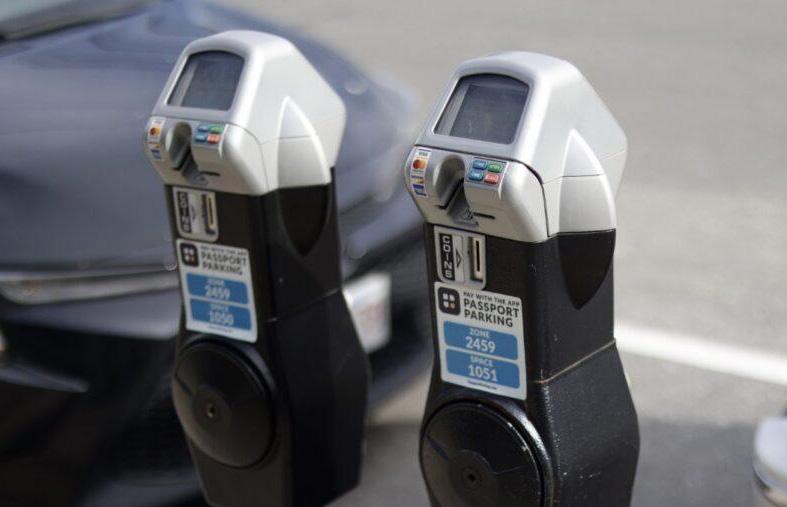
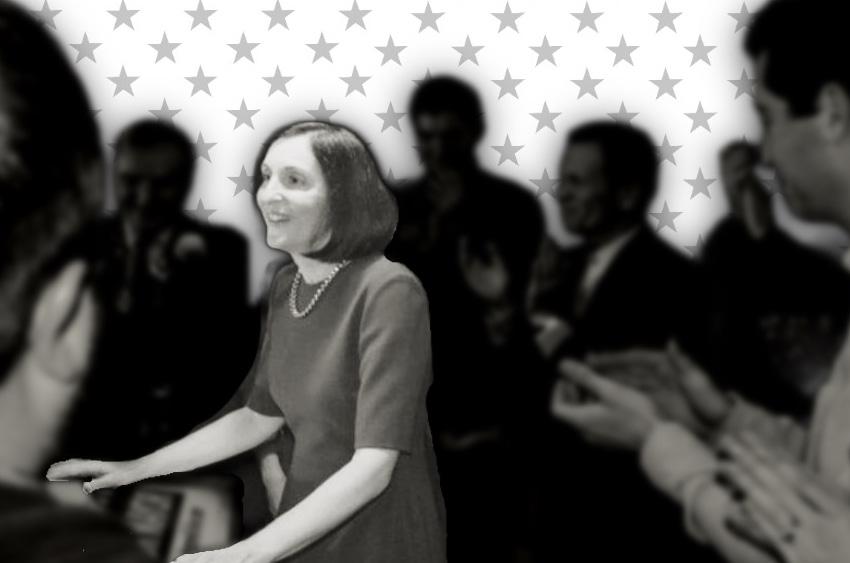
is story was originally published on Oct. 26, 2025.
BY LANEY MCADEN Assoc. Newton Editor
In 2017, mayoral hopeful and Ward 7 Councilor-At-Large Ruthanne Fuller wrote an op-ed in the now-defunct Newton Tab, forecasting the challenges before the city she hoped to lead.
Predicting a shrinking housing stock, worsening climate crisis, and crumbling sidewalks and schools, Fuller drew a portrait of the mayor she sought to be.
“Meeting these challenges requires a strategic leader, who knows what we must do, so we can plan for what we want to do, someone who can empower us to think big within our means, a person with a vision and the experience to deliver,” she wrote in August 2017.
While Fuller confronted these issues once elected that November, the next eight years would bring challenges she couldn’t have expected.
“I was the mayor during the pandemic,” Fuller said. “I was the mayor during the George Floyd racial reckoning. I’ve been the mayor during the teachers’ strike. I’ve been mayor when the Israel-Hamas war found its way, in both literal violence and violent rhetoric, here to Newton. And I’ve been the mayor when people really would have preferred that there was a lot more money to invest in a lot of additional ways.”
As voters gear up to elect a new mayor, Fuller re ected on the principles that guided her tumultuous tenure—the same leadership principles she had put to paper in the op-ed years before.
“I think my values have remained the same,” said Fuller.
Fuller continued, “What I’ve tried to do in these challenges is
to listen carefully, be empathetic, stay curious, serve as everyone’s mayor, and be guided by what I think is best for the community as a whole.”
One byproduct of these conicts was an erosion of con dence in the very authorities meant to solve them, including the mayoralty.
“ e erosion of con dence in what used to be the major institutions that surrounded us, from universities, to the church and religious organizations, to government, to educational leaders, to scientists and doctors and more— it’s all exploded,” said Fuller.
Fuller began her career in Newton public service in 2010, serving as Ward 7 City Councilor-at-Large until 2018. at experience and her two decades as a strategic planner for nonpro t organizations and businesses helped her navigate a tenure characterized by change.
Particularly, shifting values at a national level have ltered down and impacted all parts of Newton, Fuller explained.
“Certainly the change in perspectives at the national level, in the United States, between the two major parties, as they’ve gone back and forth in terms of who’s been in o ce with really quite di erent value systems,” said Fuller. “All of that has impacted everybody who lives, works, and visits the City of Newton.”
is changing political atmosphere, Fuller believes, has been especially evident in people’s emotional and mental states.
“ e combination of anxiety, mental illness, health struggles, loneliness, and anger—they’ve all just increased dramatically, and certainly in the eight years that I’ve been there,” said Fuller. “I think I saw some of it in my early years, but it’s just really accelerated.”
Despite national changes— and challenging impacts on the city—Fuller remains confident that Newton is one of the greatest places in the world.
“Newton continues to be one of the best places, literally in the
world, I think, to live, to raise a family, to retire in—we continue to be one of the greatest places in the world,” said Fuller. “So that’s still stable, even with all the challenges surrounding us.”
Fuller’s own election as Newton’s rst female mayor marked a turning point in the city’s history.
While she said her gender doesn’t de ne her mayoralty, Fuller encouraged her fellow women to push for a place in the world, just as she has.
“I have rarely felt that I’ve been judged largely or solely on the fact that I’m female, but I would still say I feel quite strongly that women should pay it forward and support each other,” Fuller said. “Be a mentor and nd a mentor and have the wherewithal, the confidence to … just find your passion and go for it, even if it’s a male-dominated eld.”
Fuller believes that Newton’s values are built by its people, who care deeply for their city and neighbors.
“I continue to believe that Newtonians certainly look at their own personal circumstances and also care deeply about the community at large, that they will continue to care passionately about our children, our elders, and the vulnerable among us,” said Fuller.
Newton, like any other city, has people with a wide range of views, but Fuller believes that the people of Newton are especially tasked with remaining respectful and open to discourse.
“We are not monolithic,” Fuller said. “Our ability is to continue to see each other as neighbors and know each other and be able to hear each other and not fall into the social media trap of angry dogma or dogmatic communications.”
Fuller said political polarization and extreme language are problematic, speci cally once the mentality becomes “them versus us,” something she hopes Newton avoids.
“It’s up to all of us to continue to be respectful, show compassion and talk about facts versus opinions, and provide hope and
look for ways forward that involve compromise and cooperation,” said Fuller.
Fuller’s insistence on communication and respect is a byproduct of her familiarity with discourse and criticism, having been the mayor during a slew of di cult situations—from global political issues that found local manifestations to competing school budgeting proposals.
Decision-making can be difficult, Fuller said, particularly when there is disagreement. Fuller maintained, however, that she is unconcerned with popularity.
“Hear the loud or angry voices, but do what ultimately is right for the city—not necessarily what is, in the moment, the most popular
her and the municipal election on Nov. 4, Fuller is insistent that every candidate, whether for school committee, city council, or the mayoralty, needs to be forward-thinking and prepared to meet the challenges of the current era.
“I would look for people who understand the need for continuous improvement and ongoing change in Newton,” said Fuller. “People who are not looking back and trying to keep the status quo, but are looking forward.”
Fuller believes that elected o cials must be communicative, but they must also be willing to make a decision when the moment requires it.
“Ask a lot of questions of these people, hear their ideas, incorporate their feedback, but also listen, learn, collaborate, then act,” said Fuller. “You do have to make decisions and move forward—action is required in this complicated world.”
Despite leaving City Hall behind, Fuller is excited about the possibility of taking up a new mantle in the community.
Fuller said.
thing to do,”
ese choices led to a string of political wins that Fuller said will continue to serve Newton after she leaves o ce.
“We preserved Webster Woods,” Fuller said. “We built Newton’s first center for older adults, designed just for older adults. We’ve added more diverse and more affordable housing. We’ve updated our zoning. We’ve led in sustainability. We found our way through the pandemic with, I think, good hearts and good advice. We’ve maintained a triple-A bond rating.” Fuller also invested in the construction of new schools, created programs for families struggling nancially, and paved roads and bike lanes. These projects, and more, helped to preserve Newton’s identity, she said.
With her tenure almost behind
“I know I will stay involved in the life of our country and our commonwealth in our city,” said Fuller. “I’m passionate about the people who live here and look forward to contributing in just another role.”
Regardless of what is next for Fuller, she has loved her time in o ce and will always look back on her tenure fondly.
“It’s got to be the best job in the world,” said Fuller. “There’s lots of challenges, but to be able to work with other people, to try to do good, it’s amazing.”n

“For a Greater Boston College, and For a Greater Newton”
